🇷🇺 РУССКОЯЗЫЧНАЯ ВЕРСИЯ | 🇷🇺 RUSSIAN-LANGUAGE VERSION
ALL PARTS OF THE INTERVIEW WITH A RUSSIAN-AMERICAN
Table Of Contents
- The First Visit. Verification, Acquaintance, And A Lecture
- Participation In The «#FORNAVALNYI» (tr. «#ZANAVALNOGO») Protest
- Raid At The Samara Navalnyi Headquarters
- Participation In The All-Russian Voters’ Strike
- Participation In A Pre-Election Meeting With Vladimir Zhirinovskiy
- Preparation of the Material About «The Point Of Growth» (tr. «Tochka Rosta») Application
- Participation In The All-Russian Protest Called «He Is Not Our Tsar» (tr. «On Nam Ne Tsar»)
- Interview With The German Channel «ZDF» About the «Samara Arena»
- The Court Hearing For Participating In The «He Is Not Our Tsar» Protest
- Bags And IDs Check, An Interrogation In Moscow
- Searches And Seizures At Navalnyi Headquarters All Over Russia
- Letters Of The «Unpaid» Penalty From The Court
- Messages On A Messenger
- References
1. The First Visit. Verification, Acquaintance, And A Lecture
— When was the first time you visited Navalnyi Headquarters?
— My first visit to the Navalnyi Samara Headquarters was on September 28, 2017, to cast my vote in support of his campaign. I met the coordinators of the Headquarters, offered them my help with professional video and audio recording, and stayed for a lecture about the interaction between the government and opposition in Russia in history. Later, I donated dozens of boxes of paper and thousands of rubles to the Headquarters and gave out more than 10,000 flyers of the Headquarters before and after my lectures at the university.
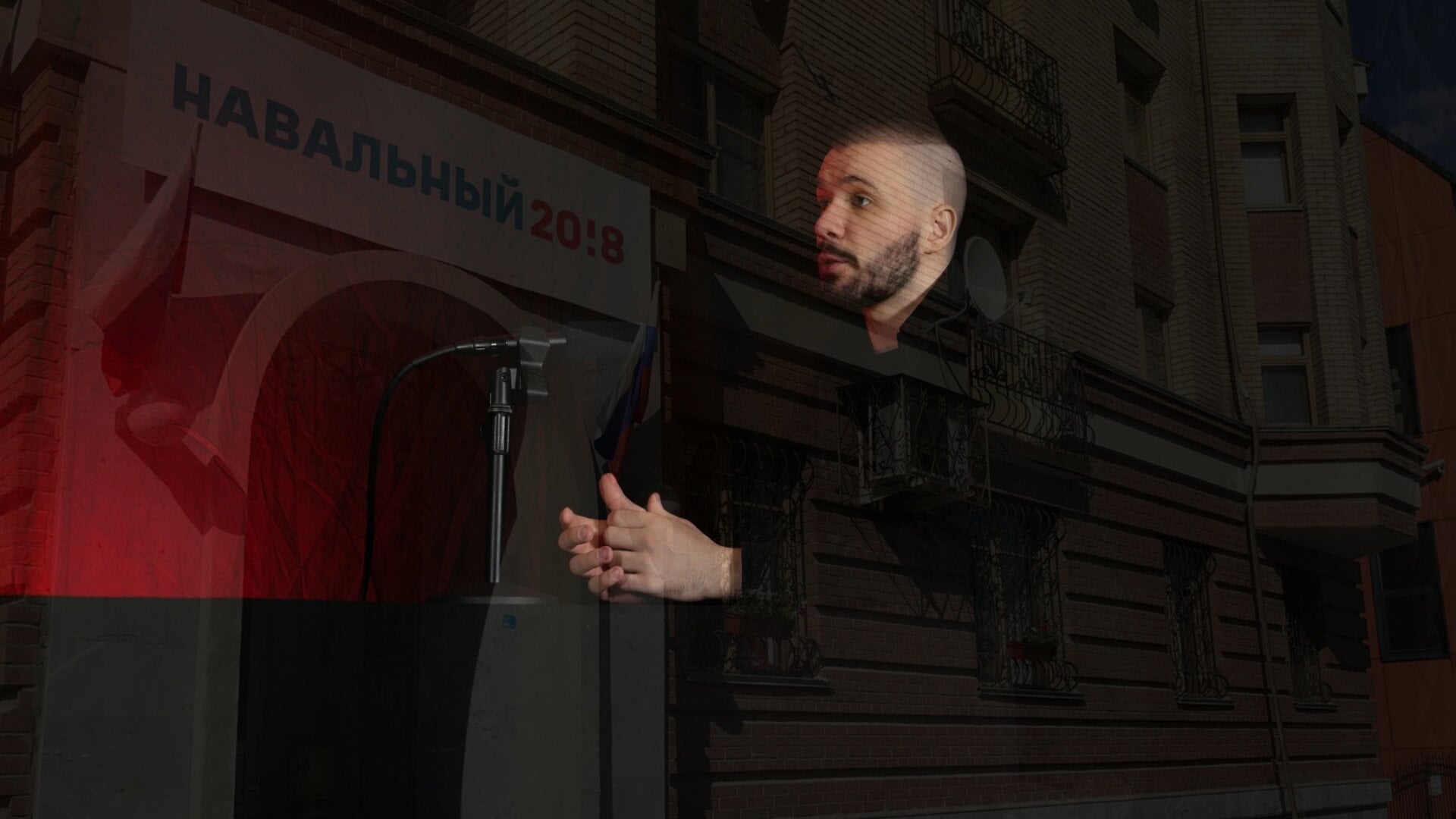



2. Participation In The «#FORNAVALNYI» (tr. «#ZANAVALNOGO») Protest
— Do you remember the first protest you attended?
— The beginning of the «clash with reality» happened on October 7, 2017, at the protest called «#FORNAVALNY» in support of Aleksei Navalnyi, which was organized by Navalnyi Headquarters all over Russia. It was located at the Kirov Square in Samara as well. There, in front of my eyes, 5 police officers detained an old lady for her poster «Navalnyi — for President!»
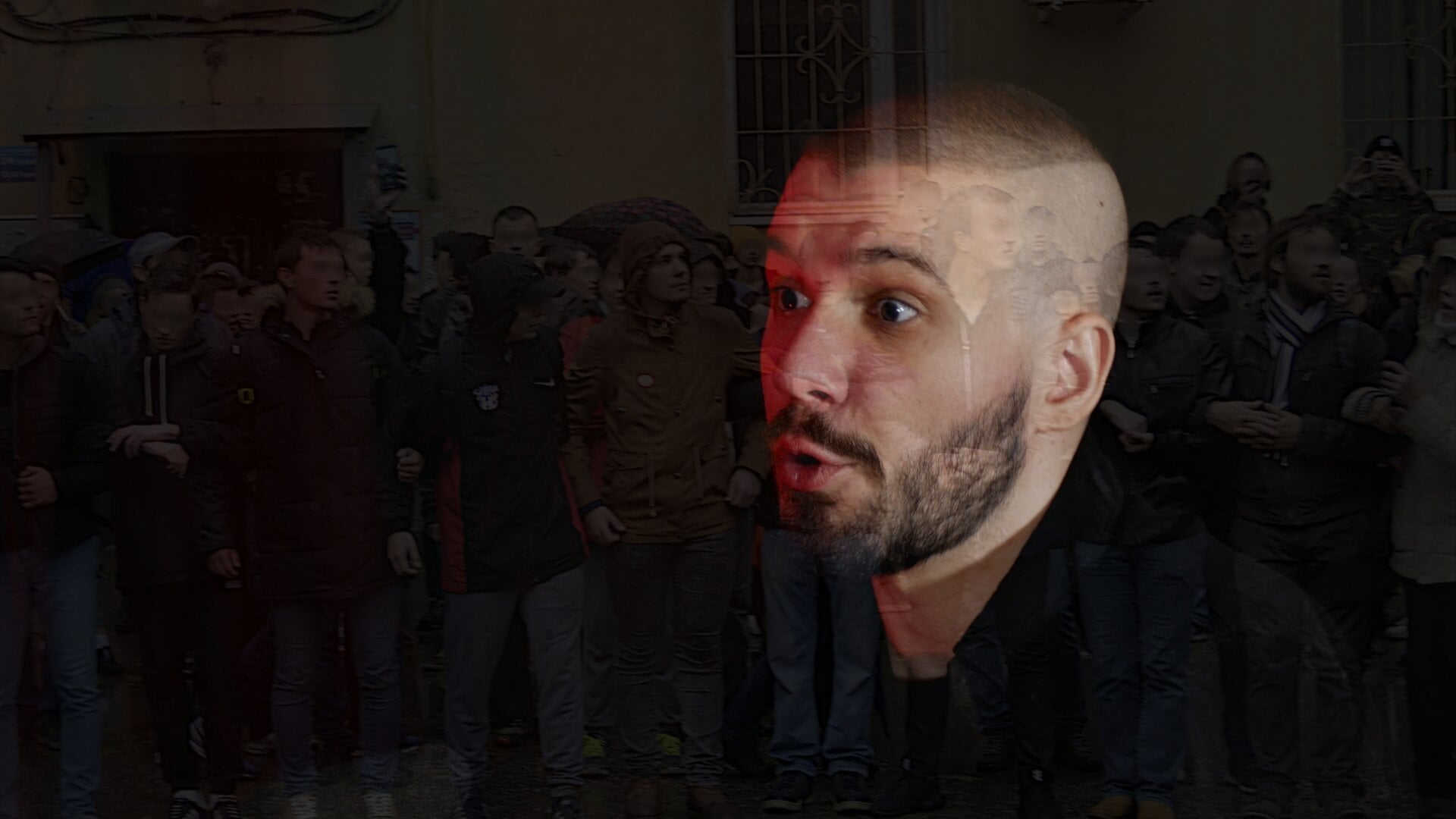



Like other participants in that peaceful protest, I constantly faced physical pressure, attacks, and provocations from people in plain clothes with identifying armbands on their hands. The police looked at all of this, but took no action.

— Did you do anything after that?
— We published an investigation and found that these people were part of an organized group under the direct supervision of an employee of the Samara Governor’s Office and the police.
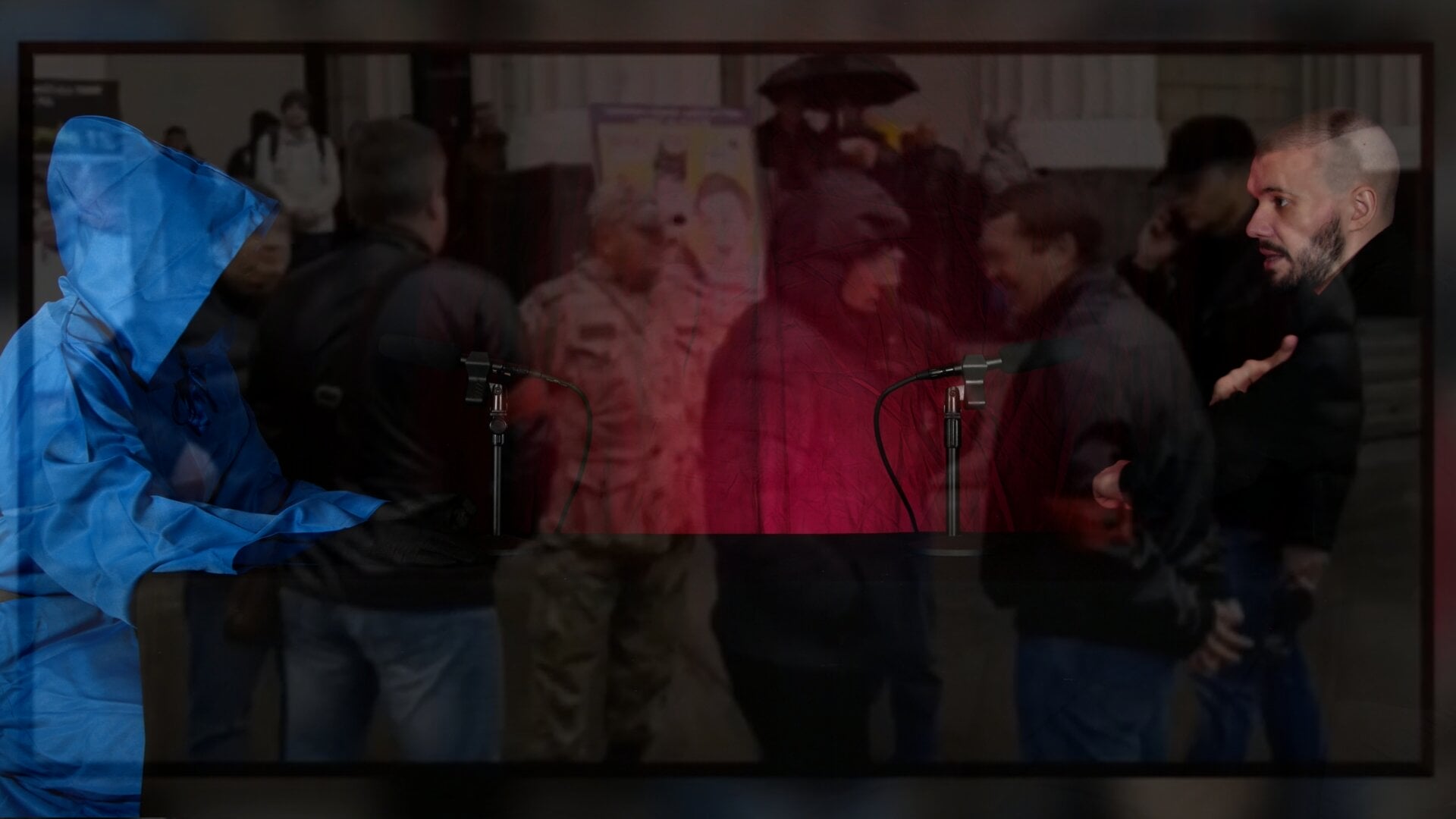

Of course — because of the attackers’ connection with the Governor’s administration and the police, a single request to the state authorities about this incident would have been useless. If I was a complainant, there could have been a danger of an administrative case for me, and I could not take the risk: at that time, I helped organizing a meeting of Navalnyi with the residents of Samara and the Samara region.
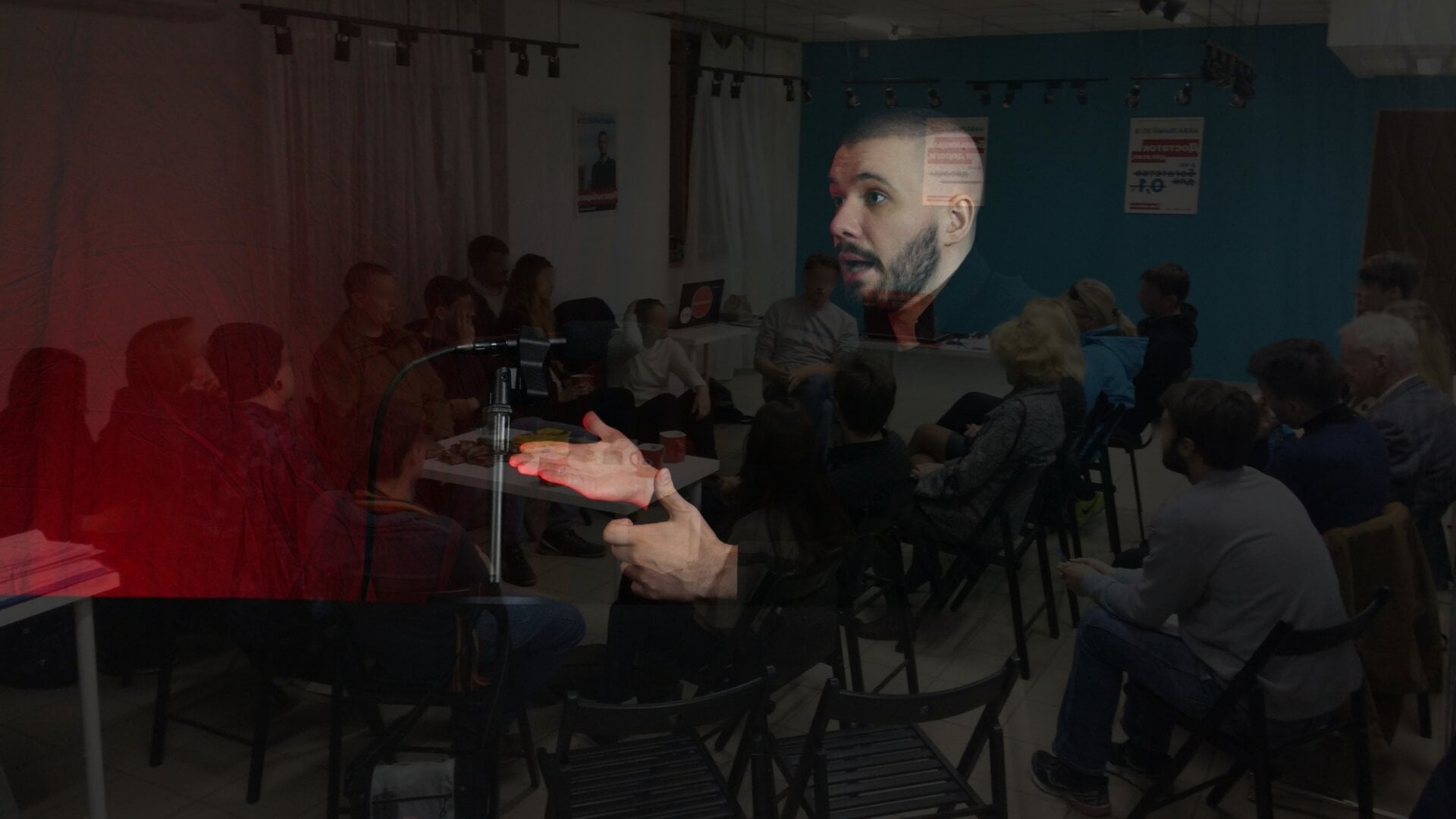
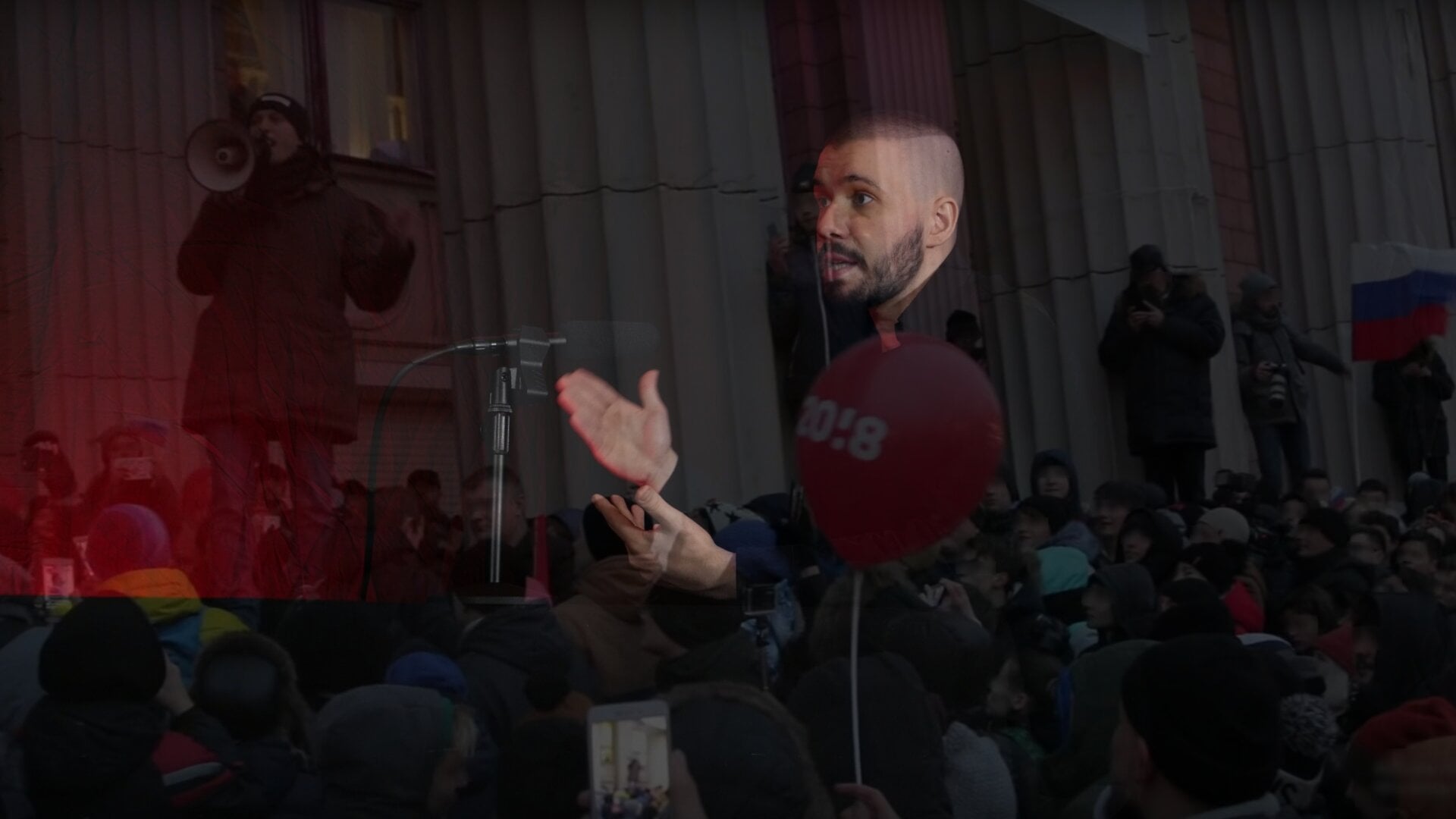
3. Raid At The Samara Navalnyi Headquarters
— Has anybody ever broken into the Headquarters?
— Many times — personally, I can tell you about my first experience. On January 19, 2018, the Samara Headquarters was raided and campaign materials and all electronic equipment were taken from us on the eve of the all-Russian voters’ strike campaign organized by Navalnyi Headquarters. The raiders did not identify themselves, nor did they show any identification or search warrants. The Headquarters staff and one activist were physically assaulted back then.


— Was anything taken from you personally?
— Yes, along with the devices in the Headquarters, the raiders also took my equipment: a studio microphone, a microphone stand, cables, and a pop filter for recording the Headquarters media. I have never seen it again, as my stuff was taken to a secret destination. The Headquarters coordinator filed complaints to the Department of Internal Security of the Ministry of Internal Affairs of Russia and to the court, but the case did not move forward.

4. Participation In The All-Russian Voters’ Strike
— Did you participate in the voters’ strike?
— Yes, I took part in the strike as one of the speakers on January 28, 2018. It happened at the Rodina Square in Samara. And 15 minutes after I spoke, 3 police officers, led by a woman in uniform, dragged me into a police van with running radio equipment.


In the police van, this woman did not introduce herself or show her ID but started interrogating me with the questions like «why I do not appreciate what the Motherland and the university give me» and why «I shouted like on the barricades during the revolution». Then she said that she already knew my name and surname and where I study, so «it is better not to complicate my life» and «fill out a report nicely» about the administrative offense, because I «will be found anyway». And I didn’t even move from my place, but in addition to the psychological pressure, I was also under physical pressure. The police officers were holding me firmly by the shoulders, and they were ready to use their police batons.
Yes, I knew about the Article 51 of the Constitution of Russia, but I was afraid of the possible consequences of my detention and I had to give them my surname, first name and patronymic name in the protocol of administrative offense, date and place of birth, permanent address, place of study, faculty and course, cell phone number for communication, and military conscription status. Otherwise, they wouldn’t let me go and they would take me to a police station — that’s what the police told me then, at least.
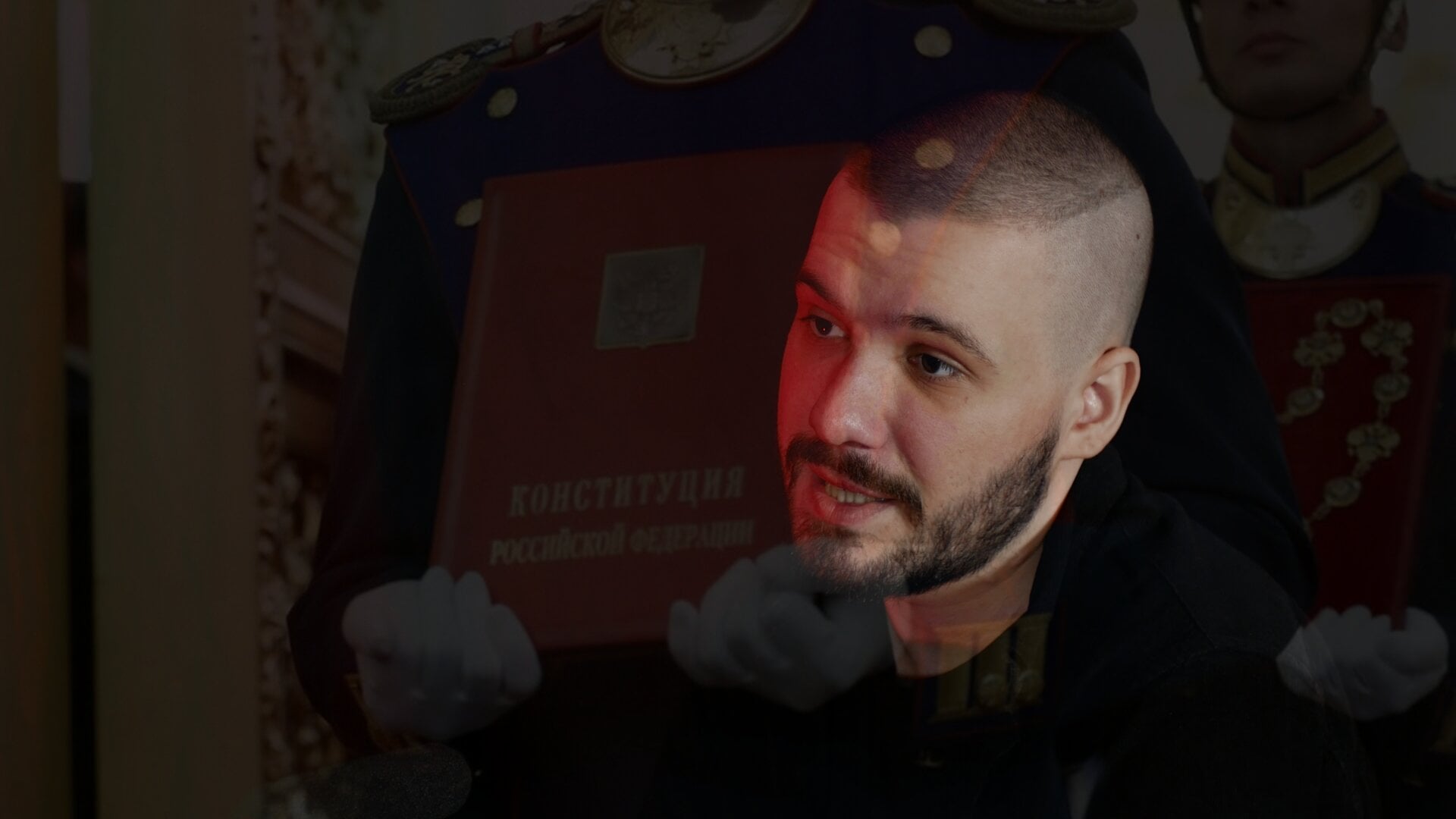

After that, this woman filled out the essence of the administrative offense report on her own — and then, she read it out loud to me after writing it.
But she did not put a dash after the last sentence — even when I asked her to do so. She had about 5 blank lines in the report, and this basically gave her the opportunity to add any «evidence» she wanted to add to the essence of the offense without my own consent. But I do not know whether she took advantage of that and added anything extra or not.
Then, the police officers demanded my passport and took it along with the report to another minibus. And 15 minutes later, I was given a black and white copy of my protocol of administrative offense. I gave this copy to one of the staff members after the protest was over, and it was kept at the Navalnyi Samara Headquarters until the raid on September 10, 2019, when this copy was either destroyed or confiscated by the police. On October 18, 2019, I asked the same employee to search for this copy again, but he could not find it anymore.
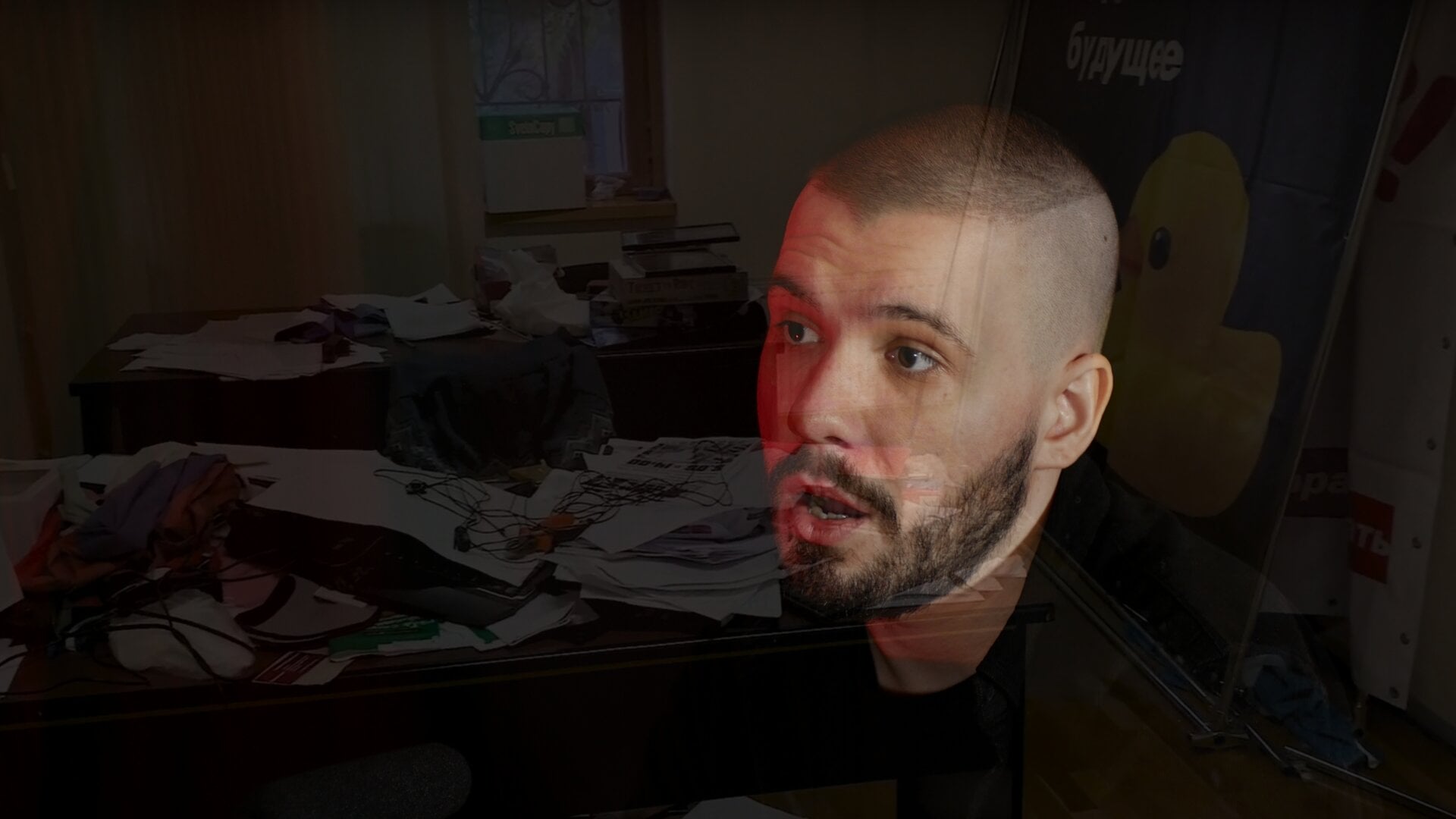
5. Participation In A Pre-Election Meeting With Vladimir Zhirinovskiy
— Have you spoken with any other politicians?
— On February 8, 2018, I attended the pre-election meeting with Vladimir Zhirinovskiy as an audience member. He was one of the most famous Soviet and Russian politicians of the current time back then and he was the leader of the Liberal Democratic Party of Russia (LDPR). The meeting took place in the assembly hall of the Samara University, and a member of the Coordinating Council of the Samara Regional Branch of the LDPR and a rector of Samara University also attended the meeting. They were sitting side by side in the front row during the meeting.



— Did you ask Zhirinovskiy anything?
— Yes, I asked Vladimir Zhirinovskiy 2 questions at the meeting. Despite the fact that the microphone was taken away from me by force right away and I began to be photographed by all the mass media present there, I still could respectfully ask Zhirinovskiy about his attitude toward possible pre-election political debates with Alexei Navalnyi and about his participation in the 2018 presidential elections in general.


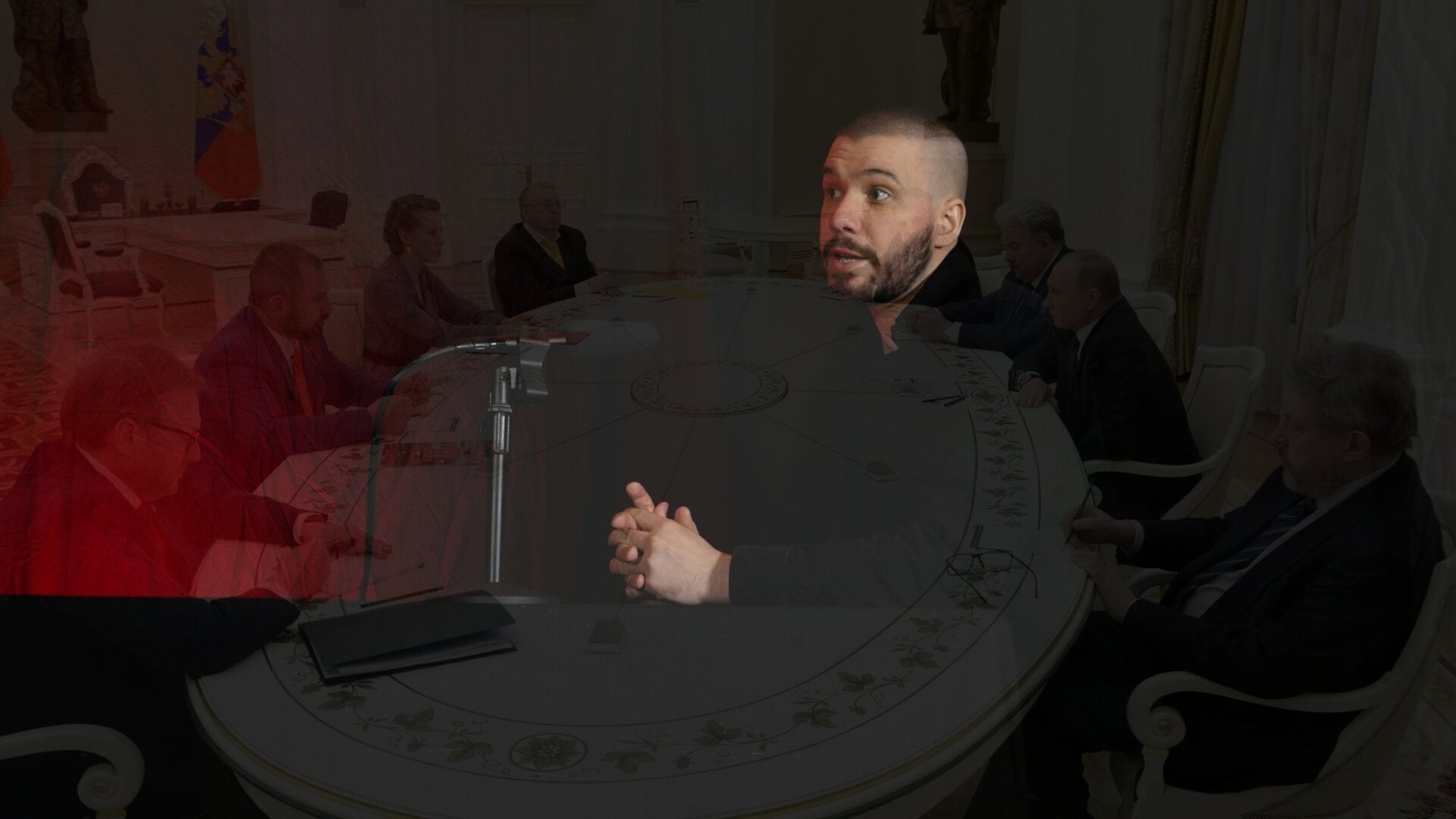
On the same day, various Internet resources (the official website of the LDPR, the «ProGorodSamara.ru» portal, the «Drugoi Gorod» journal, the «63.ru» website, and the «Perebezhchik.ru» website) released fictitious «reports».
And all of these «reports» had similar intentional transformation of the context of my dialogue with Zhirinovskiy.

— Has your university responded in any way to this?
— On February 12, 2018, I was called to the dean’s office of the Faculty of Physics at the Samara University by the secretary. In a private conversation, she told me that «I made both parties nervous» (the LDPR and «United Russia» (tr. «Yedinaya Rossiya»)); that «the rector and the dean had already reported to the authorities»; that «the question of my expulsion from the university came up»; and that my student records had been requested.


But I had no student debts, so they had no legal reasons to expel me from the university. So, after my conversation with the secretary, I went into the dean’s office and directly asked the dean if my political activities were a problem for the university.
He replied that «everyone had heard about the meeting with Zhirinovskiy» and he told me to «better do science, study hard, and be more careful from now on».
6. Preparation of the Material About «The Point Of Growth» (tr. «Tochka Rosta») Application
— Was that the only time you were called to the dean’s office?
— No. From March 11 to 16, 2018, I was collecting materials about the government election-related mobile app called «The Point Of Growth» and I was sharing the information about this app with my classmates. The result of my contribution and that of other volunteers from the Navalnyi Samara Headquarters was the release of a video investigation about this app the Samara government paid 24 million rubles for, which, on top of that, also gets almost full access to the phone.
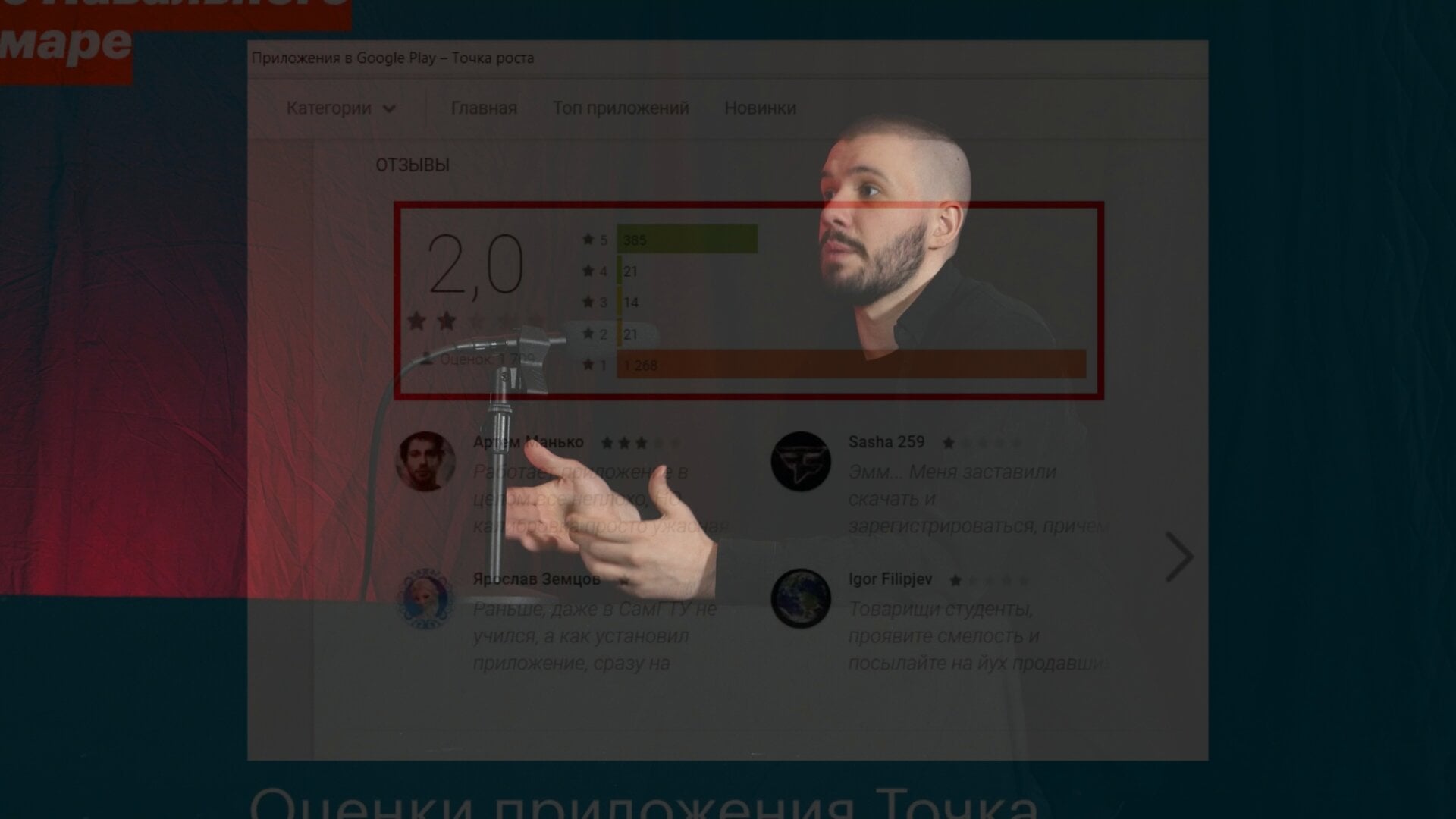
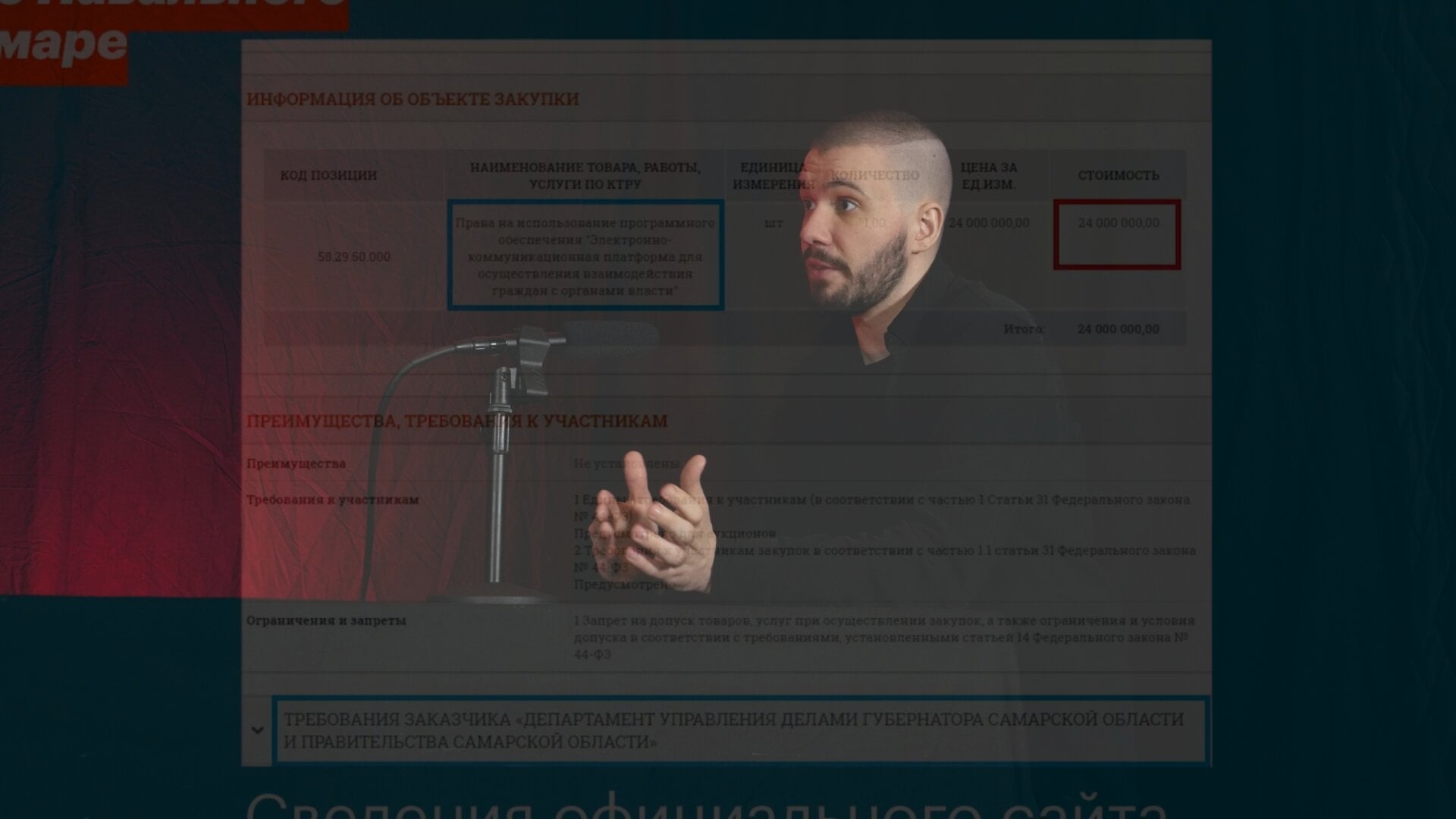
I will tell you even more: all students at all colleges and universities in Samara were forced to set up «The Point Of Growth» app on pain of expulsion. Class monitors were forced to report their progress to the deans’ offices, from where the reports were then presented to the administration members.
And of course — since I was working on the video investigation about «The Point Of Growth» app, I flatly refused to install it on my phone.
And on March 19, 2018, the dean’s secretary of the Physics Faculty called me into the office and said that someone from the University Student Council wanted to talk to me near the lecture halls. When I arrived there, I was approached by an unfamiliar woman with dark hair, and even without introducing herself, she asked if I am Vladimir Dorokhin. And to my affirmative answer, she asked why I was «rocking the boat and starting some conspiracy about the application».
When I replied to her that I was not rocking any «boat» or «conspiring» but simply informing my classmates about the proven issues of the app, the girl said that «I have created a special reputation for myself where necessary» and she asked me to stop doing that because «neither they nor I would want problems from the authorities».
7. Participation In The All-Russian Protest Called «He Is Not Our Tsar» (tr. «On Nam Ne Tsar»)
— Did you take part in any other protests after that?
— Yes, and in more than one. On May 5, 2018, I took part in the all-Russian protest called «He Is Not Our Tsar», which was organized by the network of Navalnyi Headquarters. Basically, it was simply a peaceful walk along the Leningradskaya street in Samara. Like, the most peaceful protest against Vladimir Putin’s reappointment as a president of Russia ever.


But 10 minutes after the protest started, the police deliberately clamped me, the Headquarters coordinator, and some other protesters in a tight ring, basically putting strong physical pressure on us — and the force was so strong that it was hard to breathe. After 5 minutes of these clamping, the police arrested and took the Headquarters coordinator to the Samara district court. And after 45 minutes, several rows of police led all the protesters into a designated area and did not allow anyone to leave that area for more than 30 minutes. It was literally impossible to leave the Leningradskaya street during that time. I tried that, but my attempts to do so and the ones of the other participants were not successful.
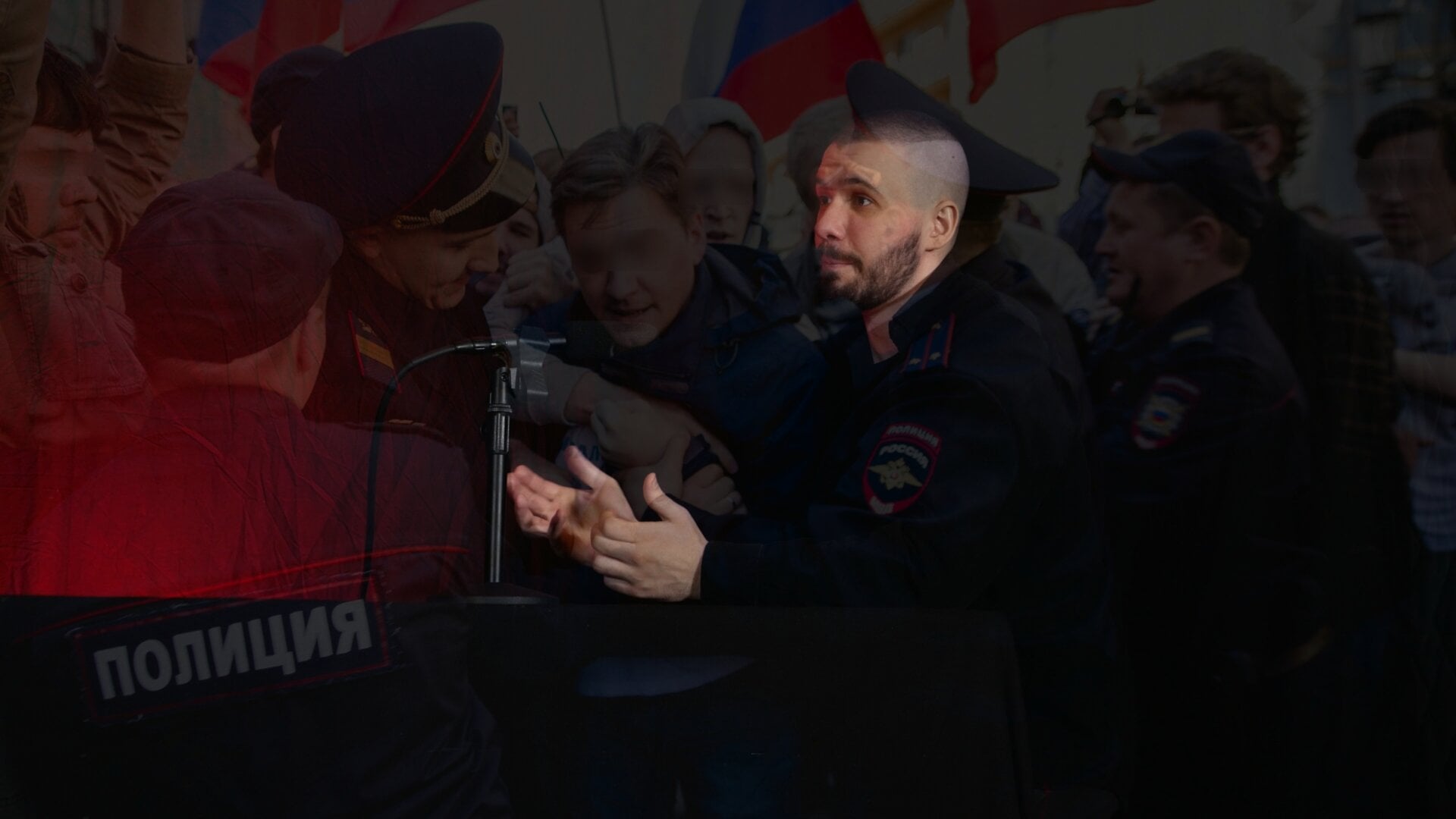

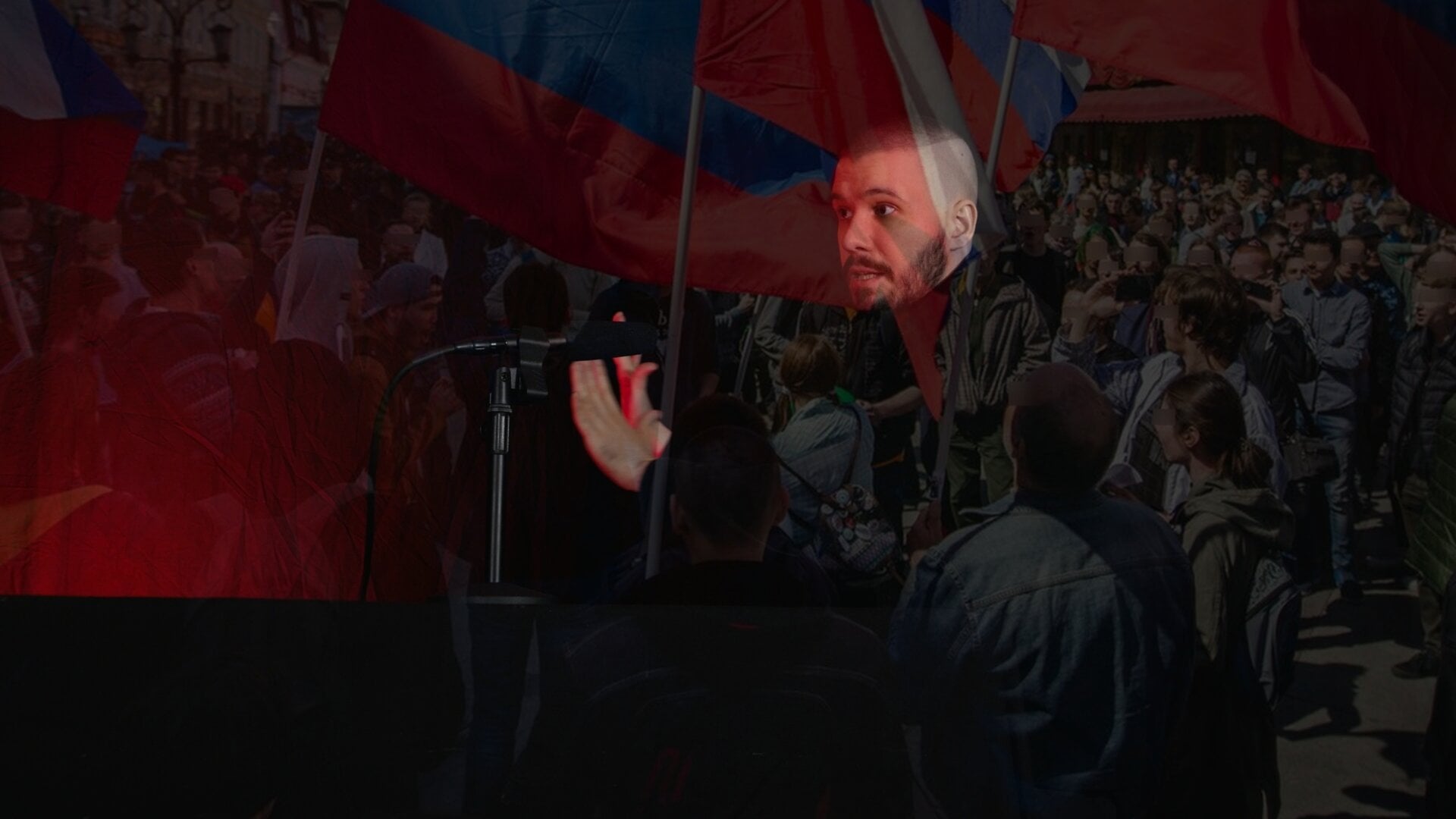
As a result of the protest, they detained 14 activists I knew personally. All of them were taken to the local police station № 7 in Samara.
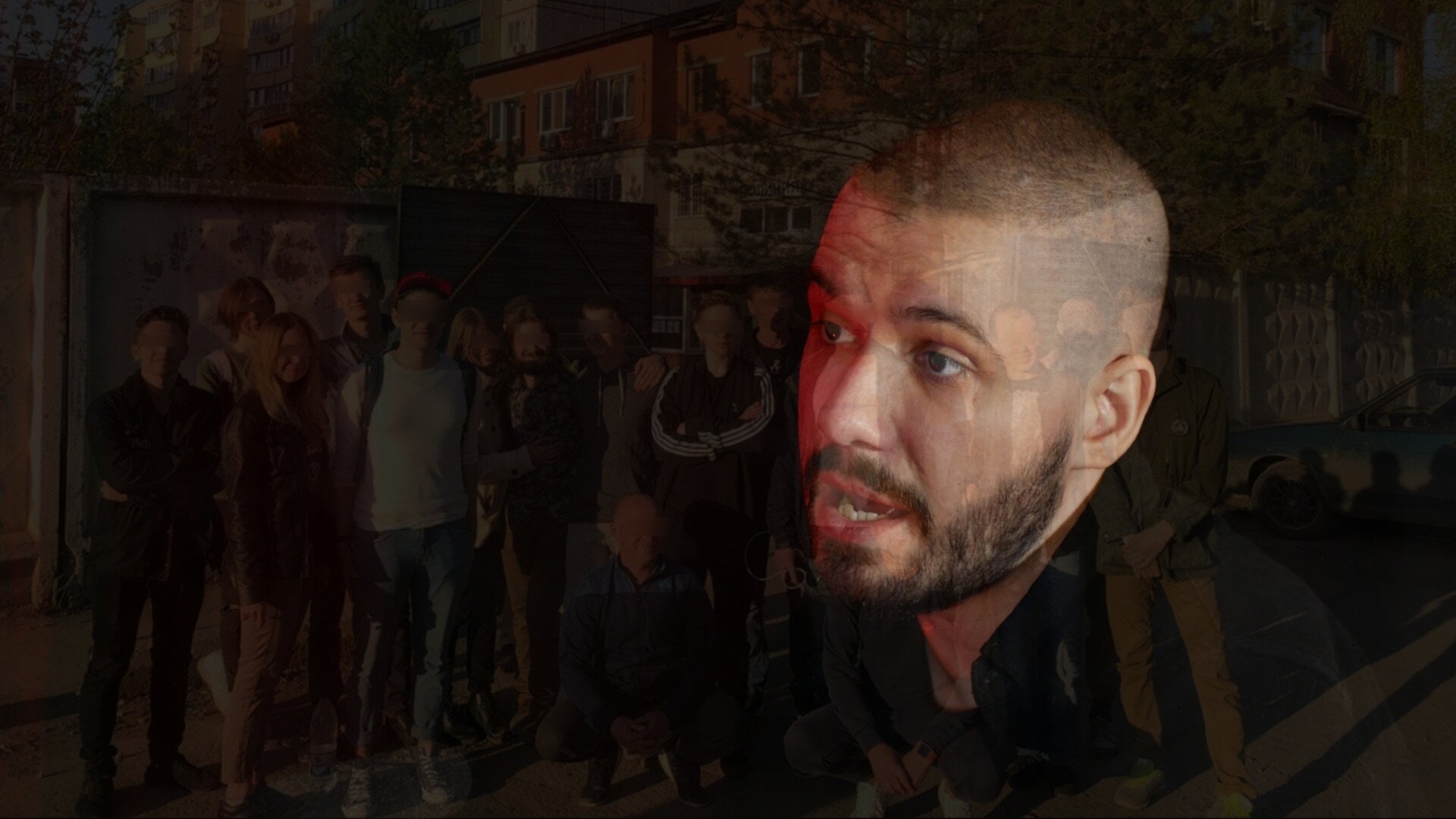
8. Interview With The German Channel «ZDF» About the «Samara Arena»
— Did you have any partnerships with any third-party media?
— On May 21, 2018, the staff of the Navalnyi Samara Headquarters suggested me to participate in an interview with the German TV channel called «ZDF». And as a future steward from FIFA, I told «ZDF» about the features and problems of the new «Samara Arena» stadium for the 2018 FIFA World Cup.
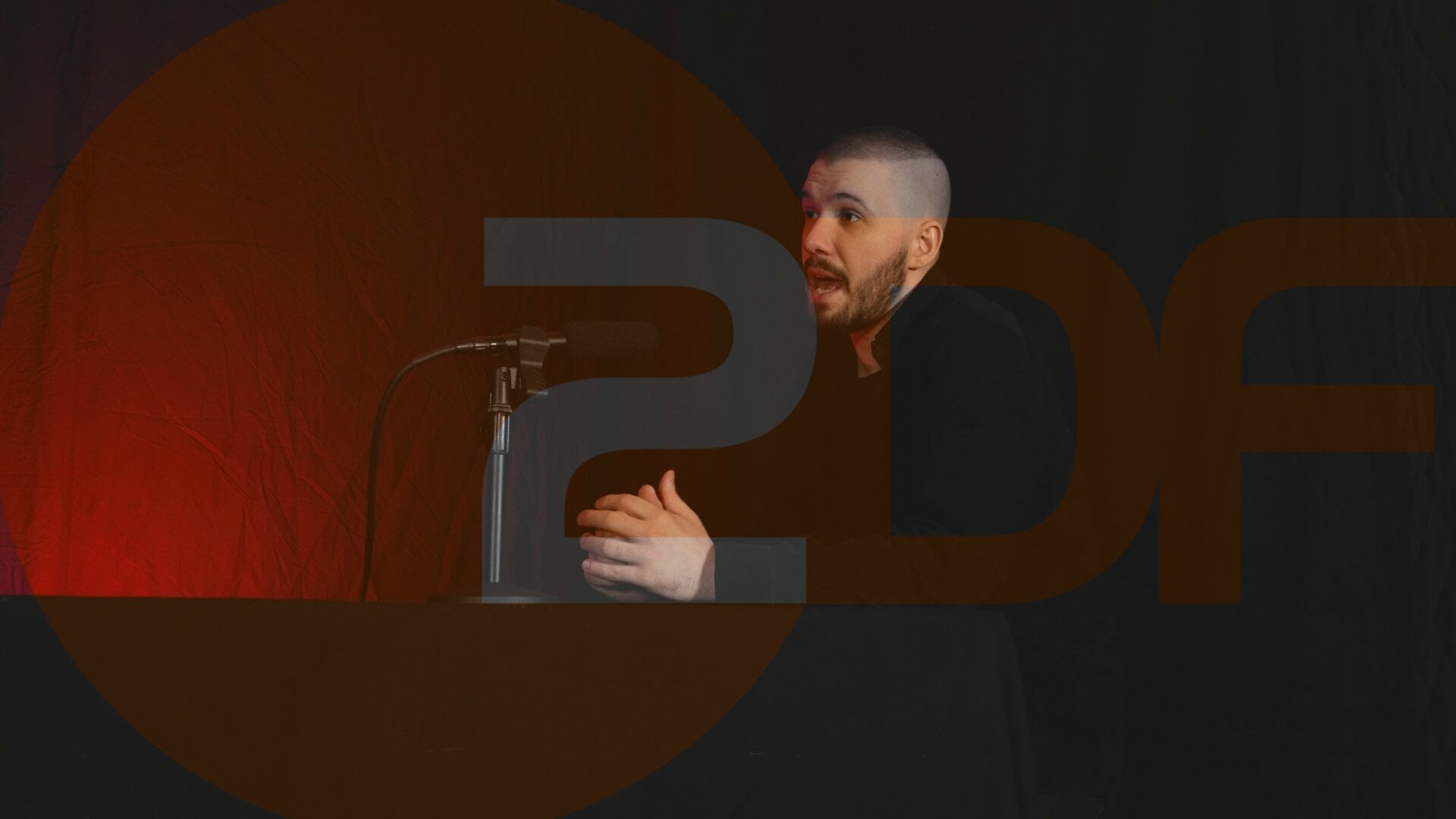


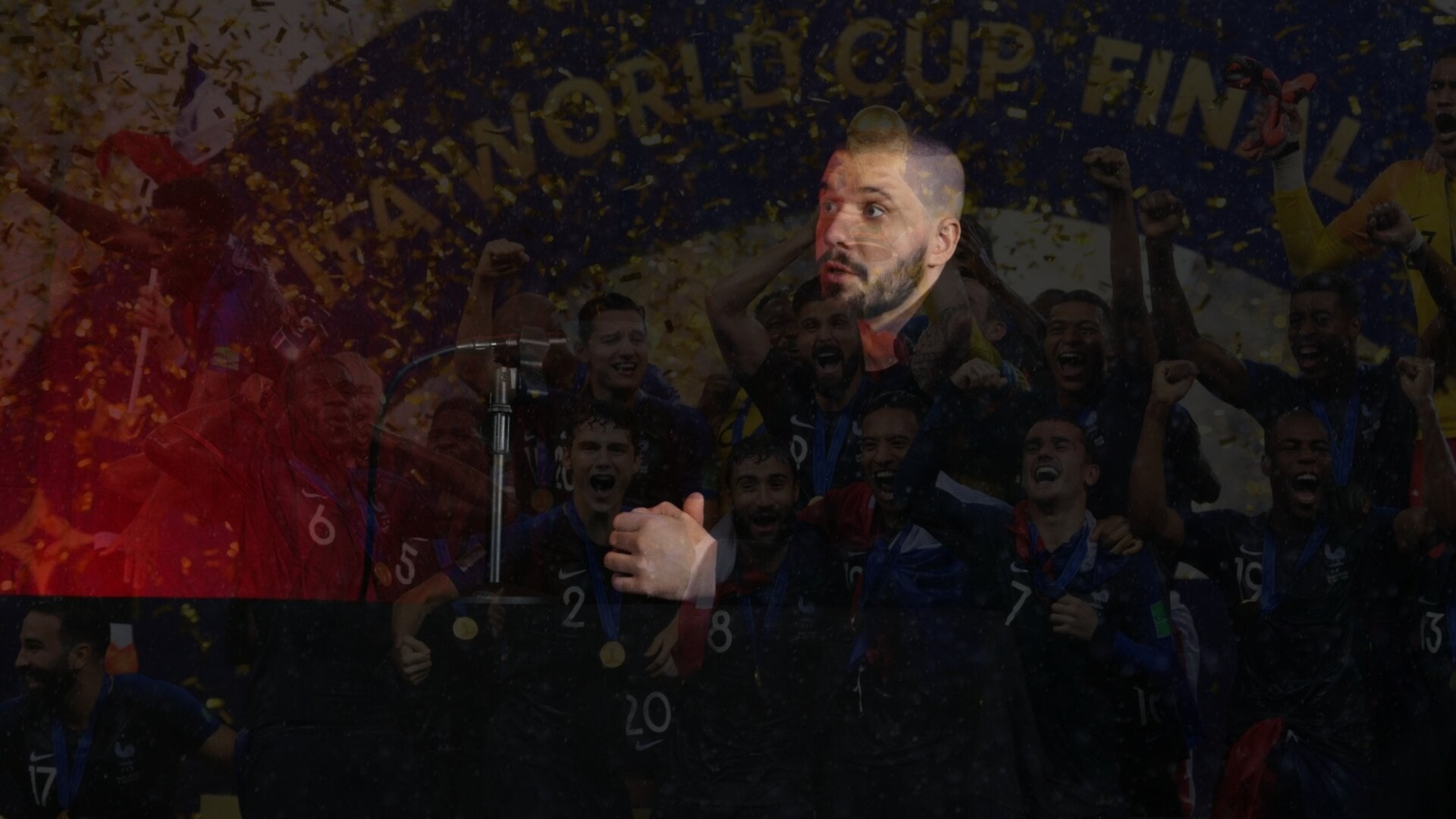
— Did your university find out about your participation in the interview?
— Yes. On May 25, 2018, I was called to the dean’s office of the Physics Faculty again and discovered that the University Student Council wanted to talk to me — again. The location was the same — near the lecture halls in the same building. When I arrived at the meeting place, the same unfamiliar woman approached me as she had on March 19, 2018. And without introducing herself again, she said that she is «just wondering what my purpose is and why I dislike our country so much that I even say something to Germans».
I became pretty cautious by the repetitive format of the dialogue and I decided not to answer any of her questions.
At the end of the dialogue, the woman told me that «they are already tired of getting punished by their superiors» — and that «if I want to be in the most “honorable” position for law enforcement representatives and a “career” in Germany more than getting a degree, then I should keep doing all of that».
Later, I found out about the direct connection between this woman and the university administration — so, I had to make the difficult decision to stop my visible public civil activities until getting my Bachelor’s degree from the Samara University. I started to participate in the civil activities anonymously and with help of the Internet.
— What have you been doing since you stopped being a public activist?
— I soon discovered the «Work and Travel» program, which allows working and traveling around the United States for several months. I really wanted to experience living in the freer society and to invest my savings into my education so that I could do more good for Russian society and the rest of the world, so I was simply burning with desire to take advantage of this opportunity!
But my parents never had the funds for any distant trip, so I started saving for the «Work and Travel» program myself. And as a result, I started working as a private English tutor and did it almost every day before and after classes at the university — from mornings until late afternoons.
9. The Court Hearing For Participating In The «He Is Not Our Tsar» Protest
— Have you faced consequences for participating in the peaceful protests?
— Yes, and the consequences were different — including a court hearing.
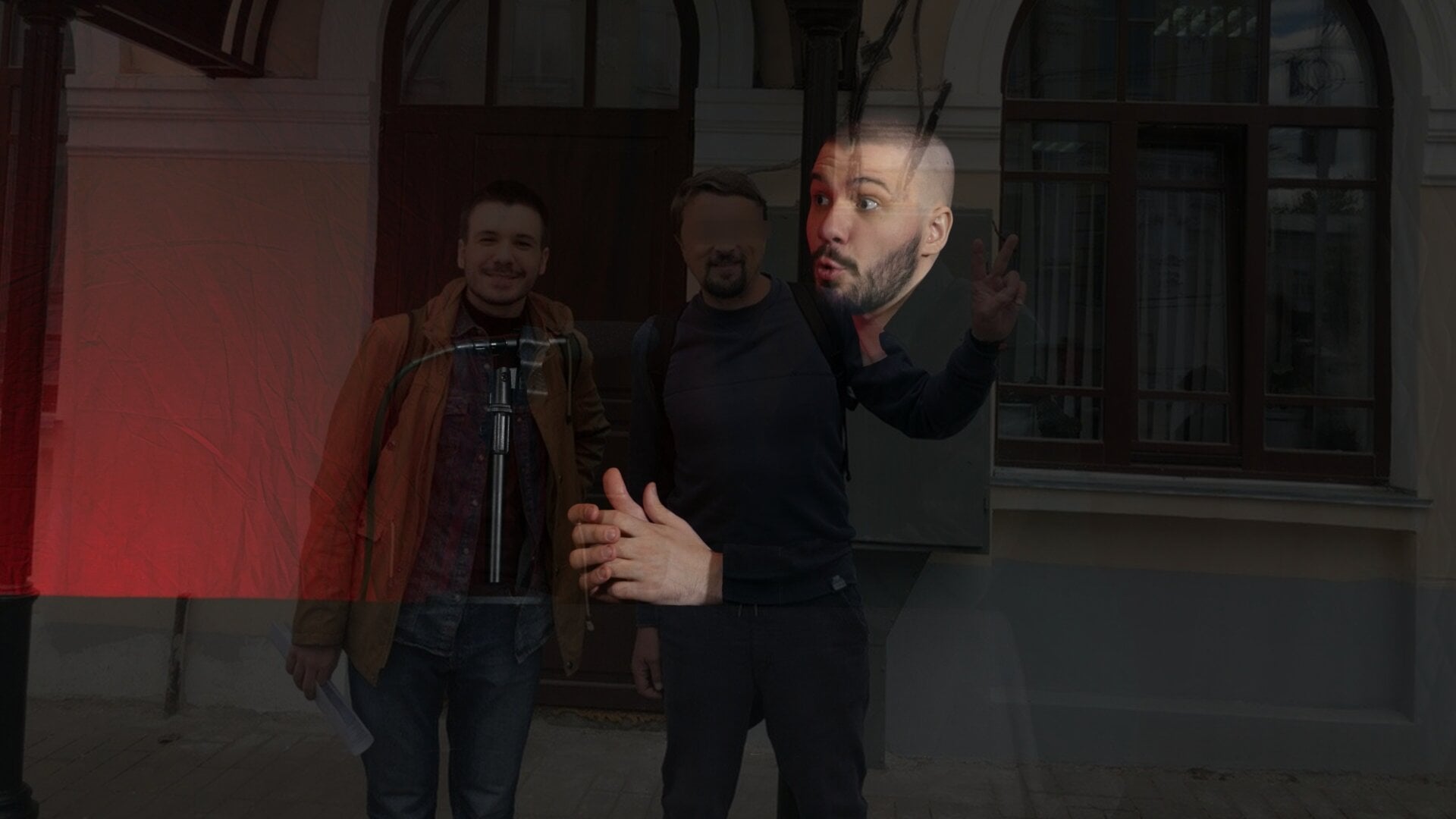
On May 27, 2018, 2 police officers came to the address of my permanent residence. I was not at home at that moment, so the police officers questioned my parents about my social activities and my connection to the Navalnyi Samara Headquarters. And at the end of this meeting, one of the police officers left a note with his signature and a demand to come the next day to the Police Station № 7 of the Zheleznodorozhnyi district of Samara.
When I came home and found out about the police visit, I immediately called the Headquarters coordinator and told him about that. The coordinator told me that they used the same strategy to sentence another Headquarters activist to 15 days in jail in the Samara district court. At first, the activist had received a note to appear as a witness, and when he arrived, the note was immediately turned into an arrest warrant. The coordinator also said that the Navalnyi Samara Headquarters will provide me with an attorney for free — and that I will most likely be taken to the Samara district court tomorrow.

And so, it happened — when I arrived to the investigator, he was already waiting for me in the office with 3 of other police officers. And literally 5 minutes after that, the investigator began to compose a report against me of administrative offense. I reported my name, surname, date and place of birth, and my permanent address in that protocol of administrative offense, but I refused to provide the rest of the data, referring to the Article 51 of the Constitution of Russia.
At 13:00, the investigator took me to the Samara district court — and an hour later, I and another activist from the Headquarters had our first court session with our attorney. The second court hearing was held on May 31, 2018, and the judge found both of us guilty. Then, we sent an appeal to the regional court of the Russian Federation, but it left the decision unchanged.
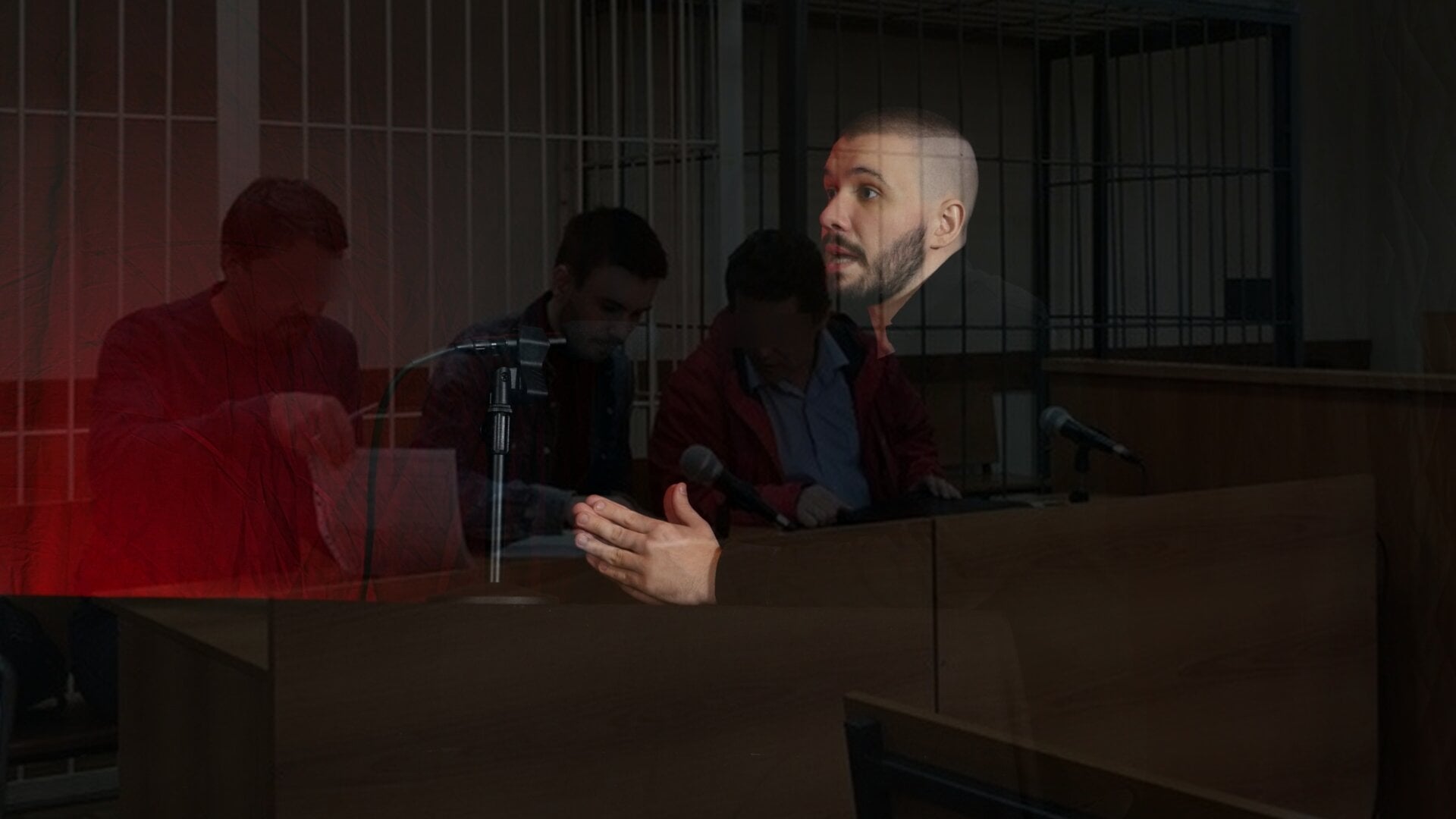
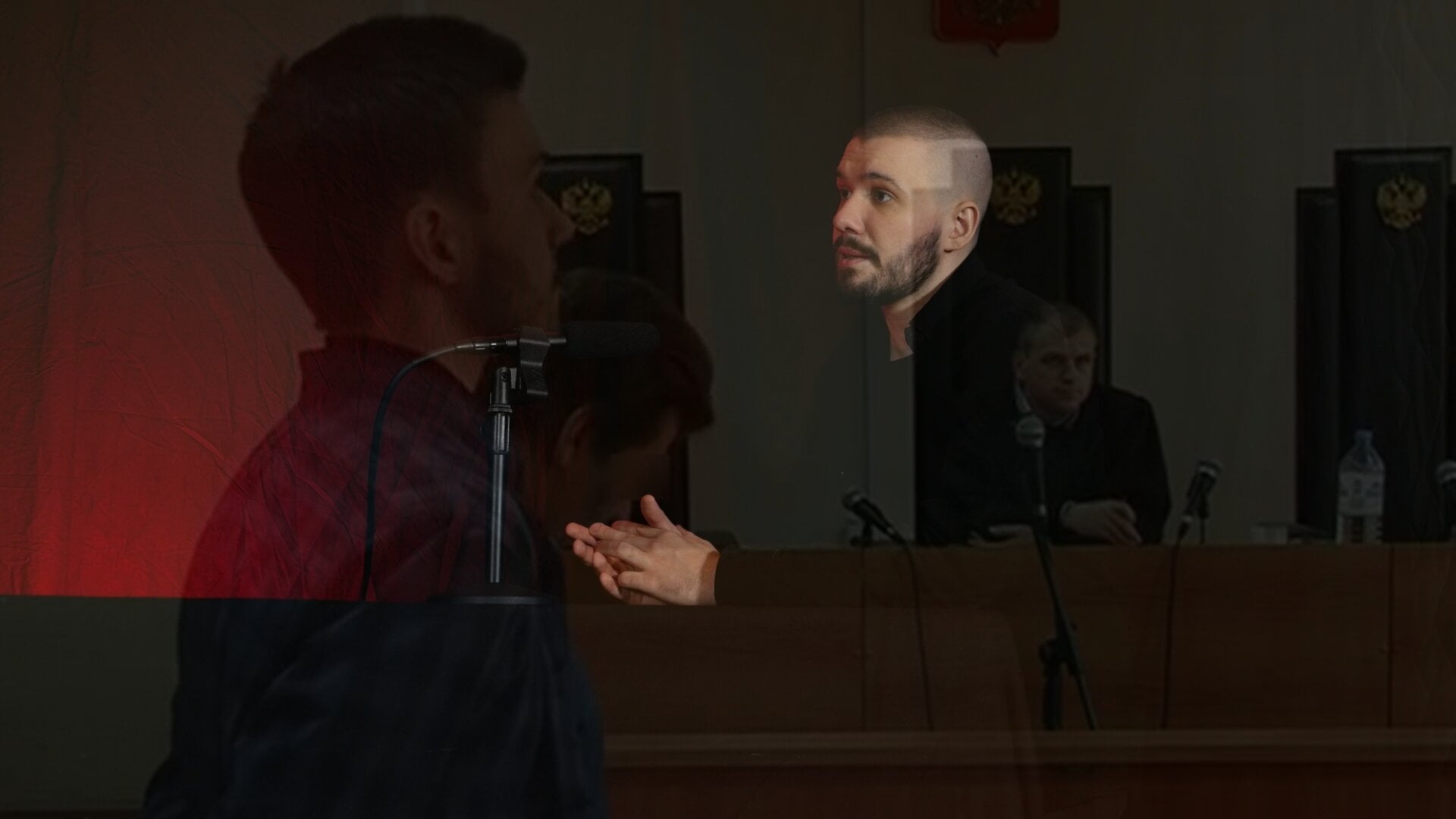
Even the state TV and radio company called «Guberniya» published a report about our trial, but they intentionally skipped my commentary I gave after the court decision and only left the commentary of another Samara Headquarters activist.
10. Bags And IDs Check, An Interrogation In Moscow
— Did you experience any problems while getting your United States visa?
— On July 14, 2019, I arrived at the U.S. Embassy in Moscow to get a visa for the «Work and Travel» program. Again, I never had any desire to relocate and stay in the United States no matter what — but I was aware that my visit to that country would give me the experience I needed to both work my projects and to contribute to Russian civil society. Initially, I just wanted to end my visit to the United States by October and return to Russia — or go to China for a while to study Asian culture.

After I was released from the embassy, I was at the metro station called «University» (tr. «Universitet»). When I approached the escalator, I was stopped by a subway worker, and he asked me to check my backpack through the scanner. In 5 minutes, a man without a uniform came up to him, asked him something like «Another one», and showed me his special ID for a few seconds. When he asked for my passport, I asked him about the reason for my stop and ID check — and the man said that if I didn’t provide my passport, I would have to go with him for a forced identification. And I realized that this was probably not a bluff, so I had to give him my passport.

This man looked at my passport page with a photo, my registration page, and he started asking me questions like «why I came to Moscow», «do I use the “Telegram” messenger», and «do I know anything about the upcoming Moscow protests (the first of which happened on July 20, 2019) or not».
I told him that I was in Moscow for the interview at the U.S. Embassy for an educational visa, that I didn’t use the «Telegram» messenger, that I didn’t know anything about the upcoming Moscow protests, and that I wasn’t going to participate in them. Then, the man asked for a password to unlock my phone, but I told him that I forgot the password.
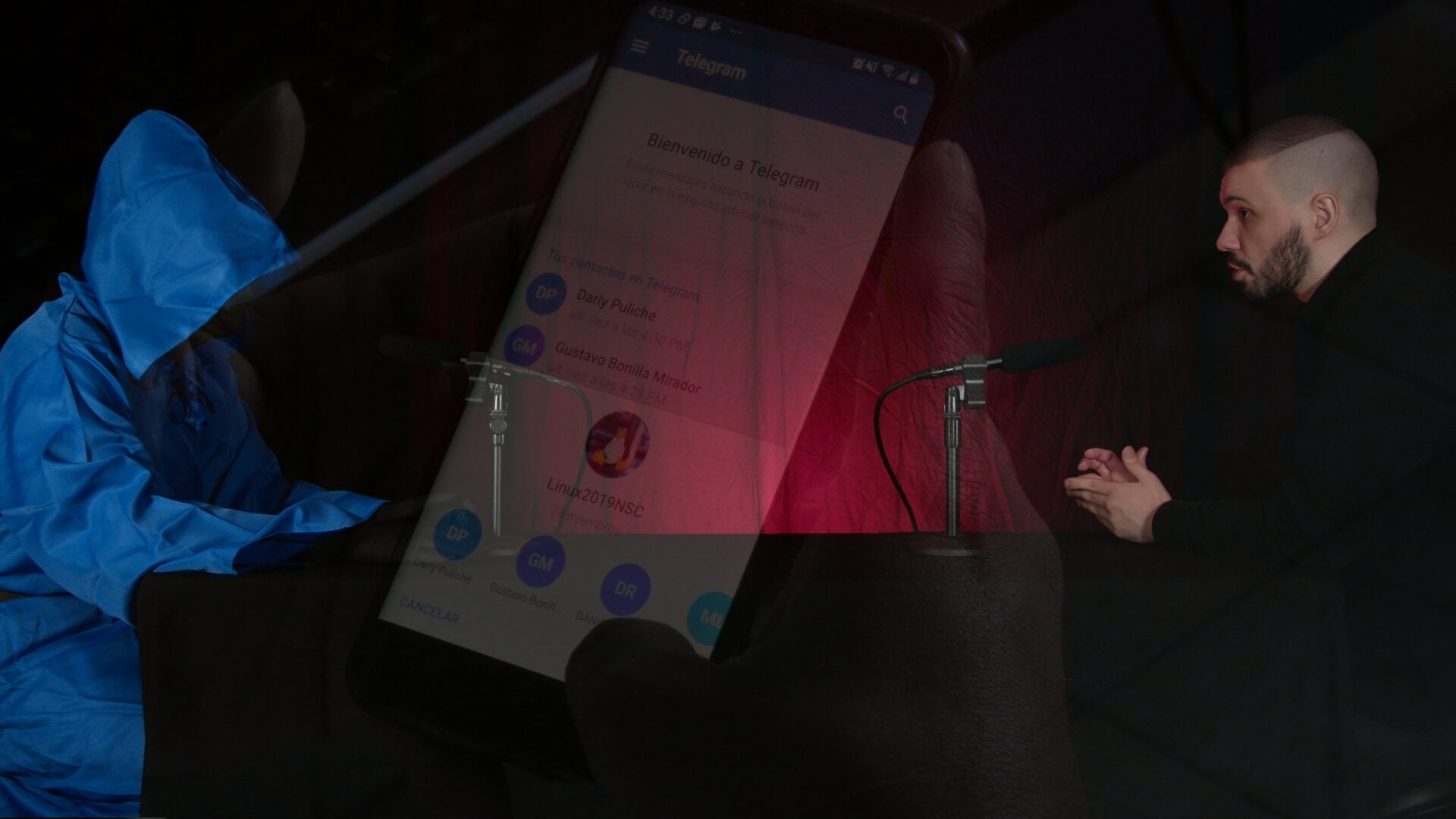
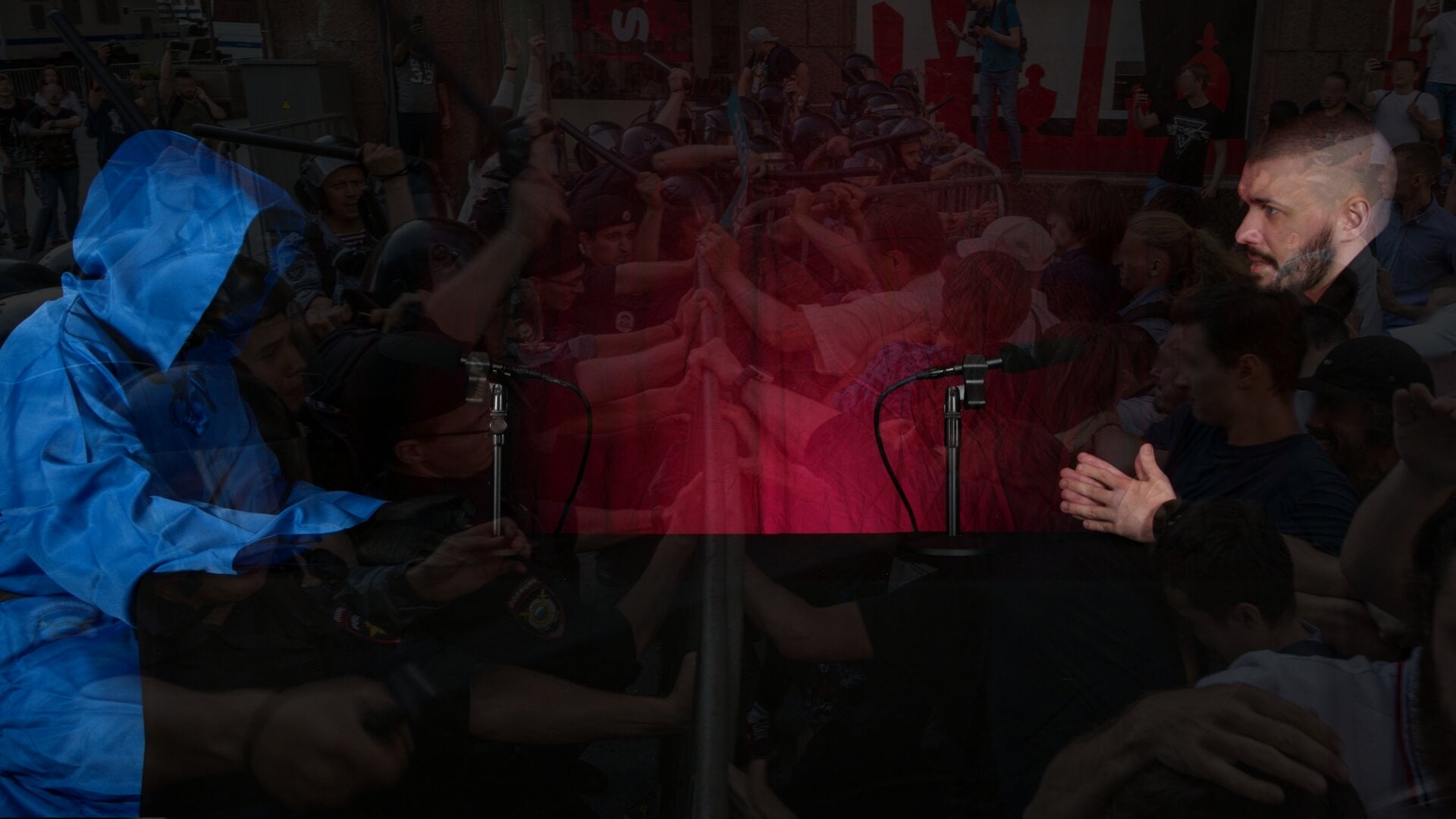
The dialogue with this man took me about 15 minutes. At the end, he copied my identification numbers in my passport, returned me my document, and told me that I could be free.
11. Searches And Seizures At Navalnyi Headquarters All Over Russia
— Have you faced the consequences of the 2019 Moscow protests?
— No, not me personally: I have already been to the the U.S. at that time. But my acquaintances had a lot to do with it. When the Moscow protests happened, the Russian government decided to respond to them by putting pressure on Navalnyi Headquarters all over Russia, including Samara, and by putting pressure on the Anti-Corruption Foundation (tr. Fond Borby S Korruptsiyei (FBK)).
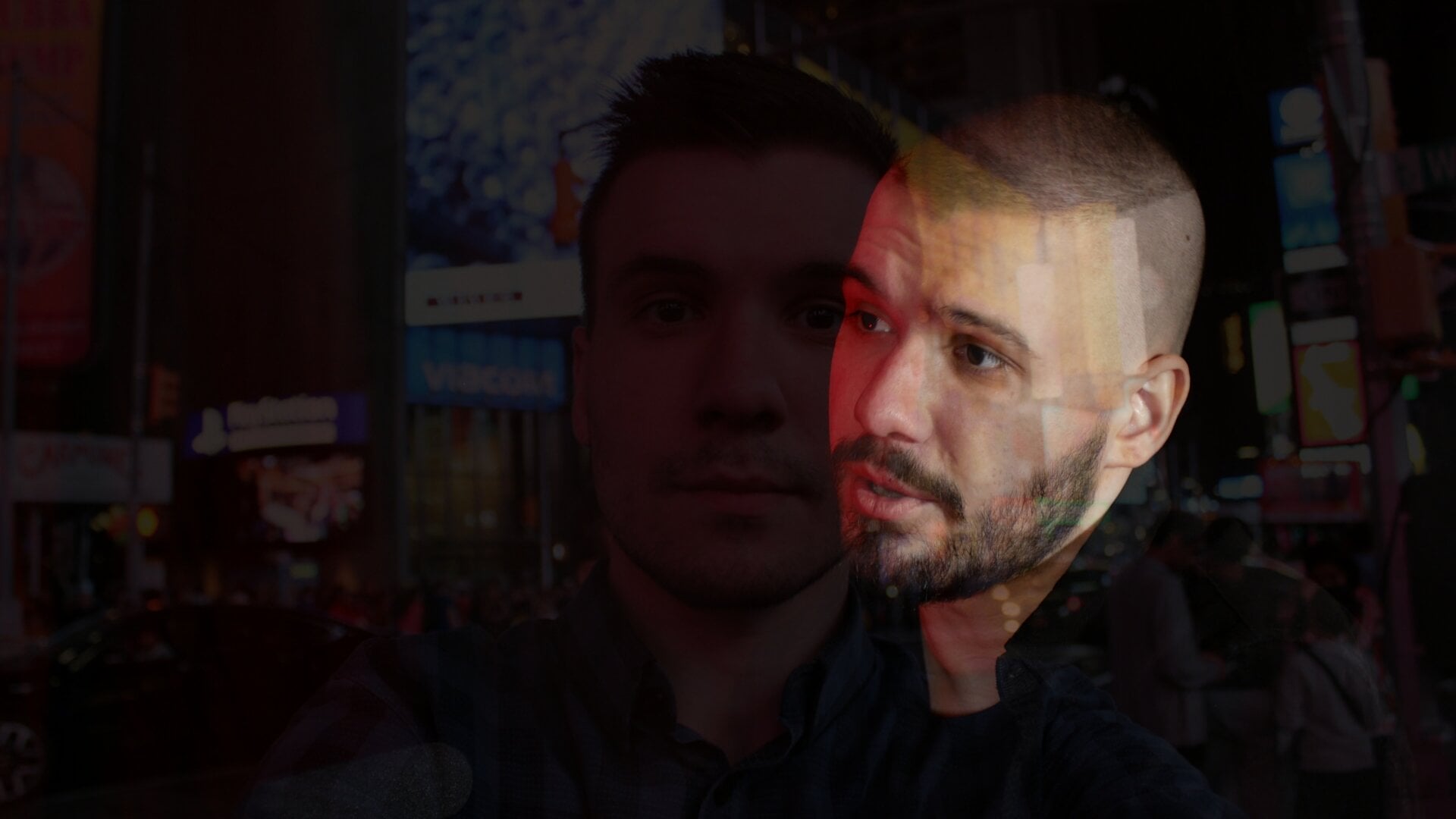
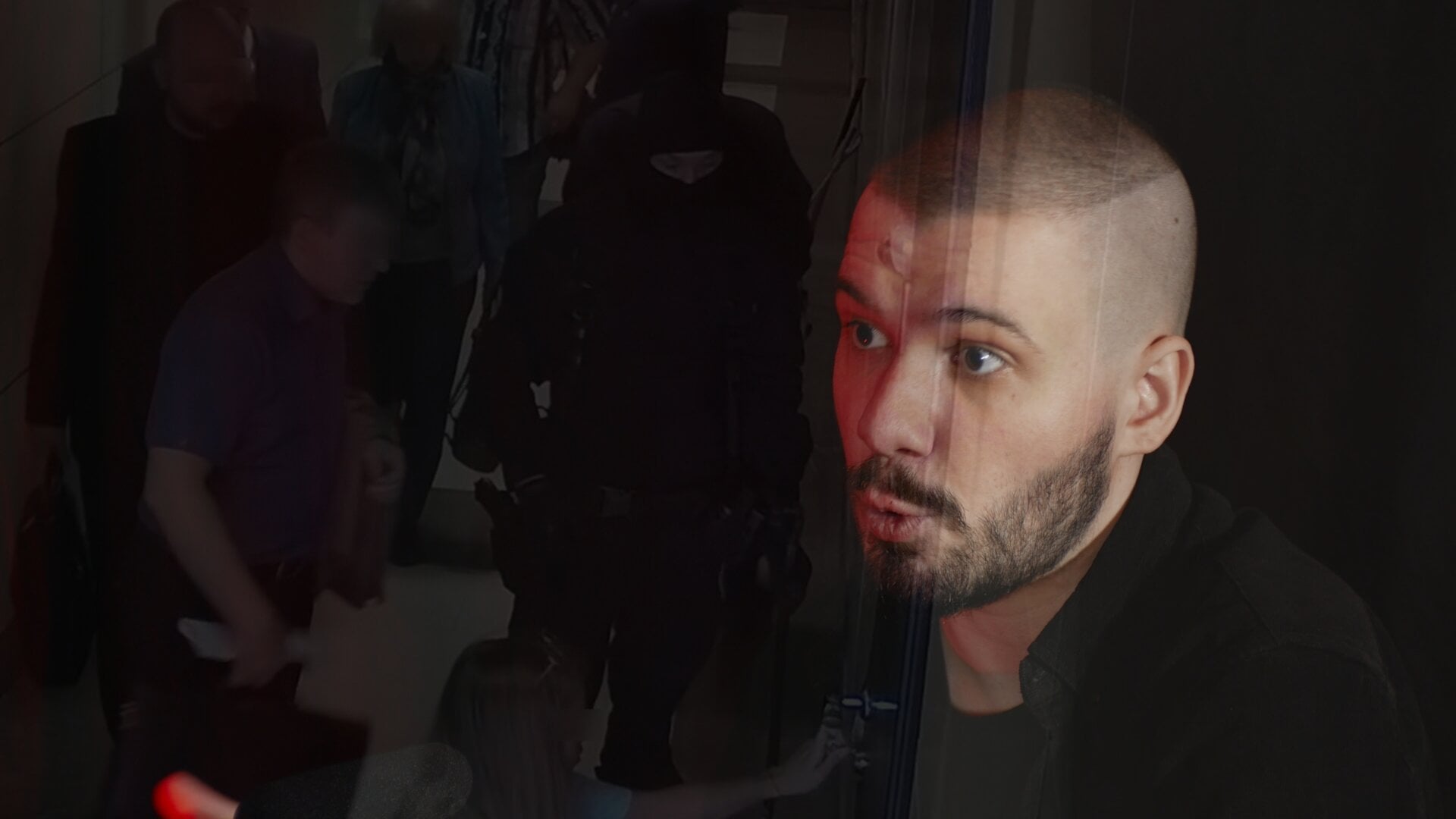


On September 10, 2019, the police searched the apartments of the coordinator of the Samara Headquarters and his wife, as well as the apartments of one of the staff members. And later, they had interrogation by members of the Investigative Committee.
A search was also conducted in the Navalnyi Samara Headquarters — and all the equipment, records, and documents were confiscated. Including my copy of the protocol of administrative offense from participating in the All-Russia voters’ strike.
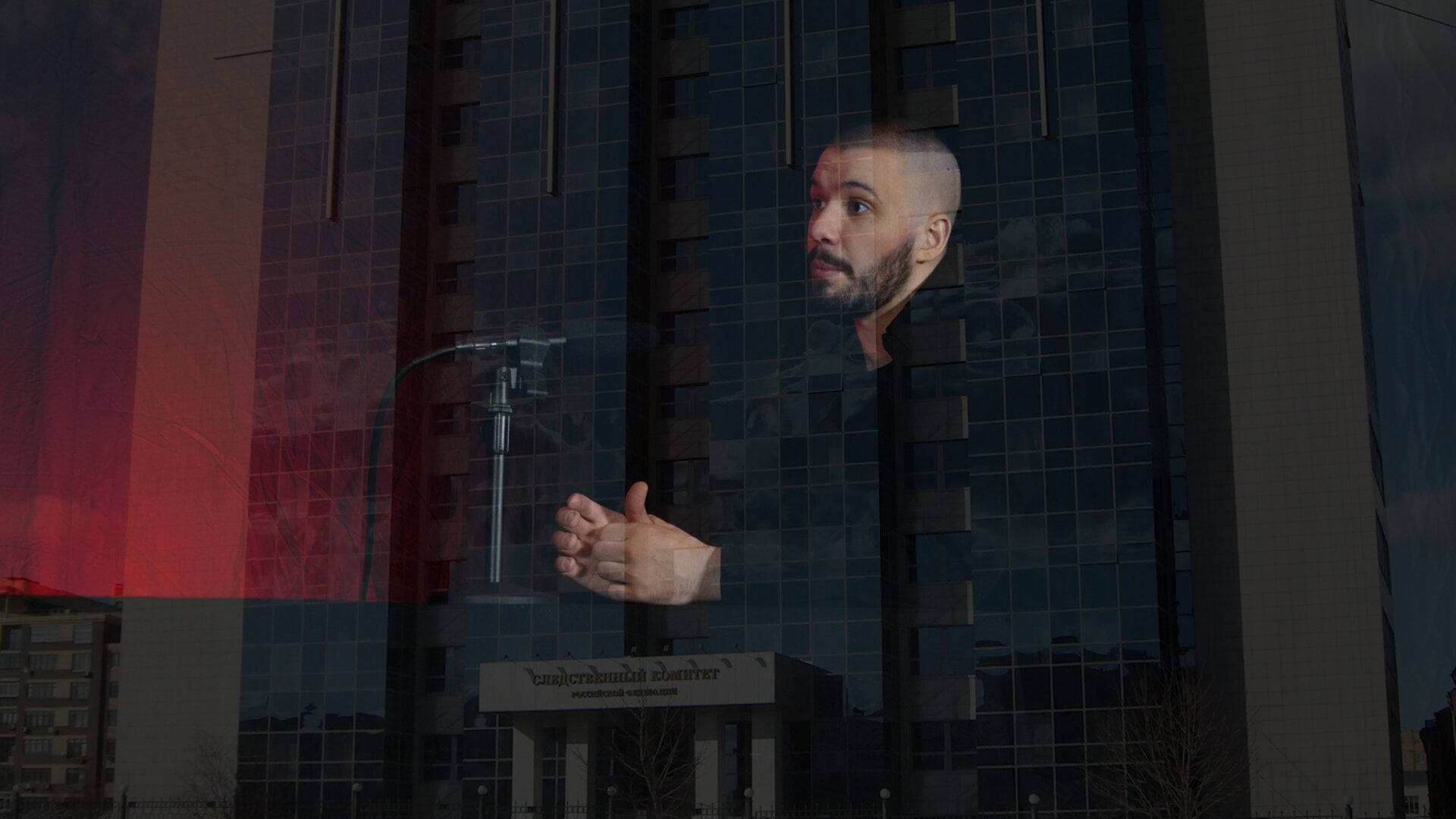
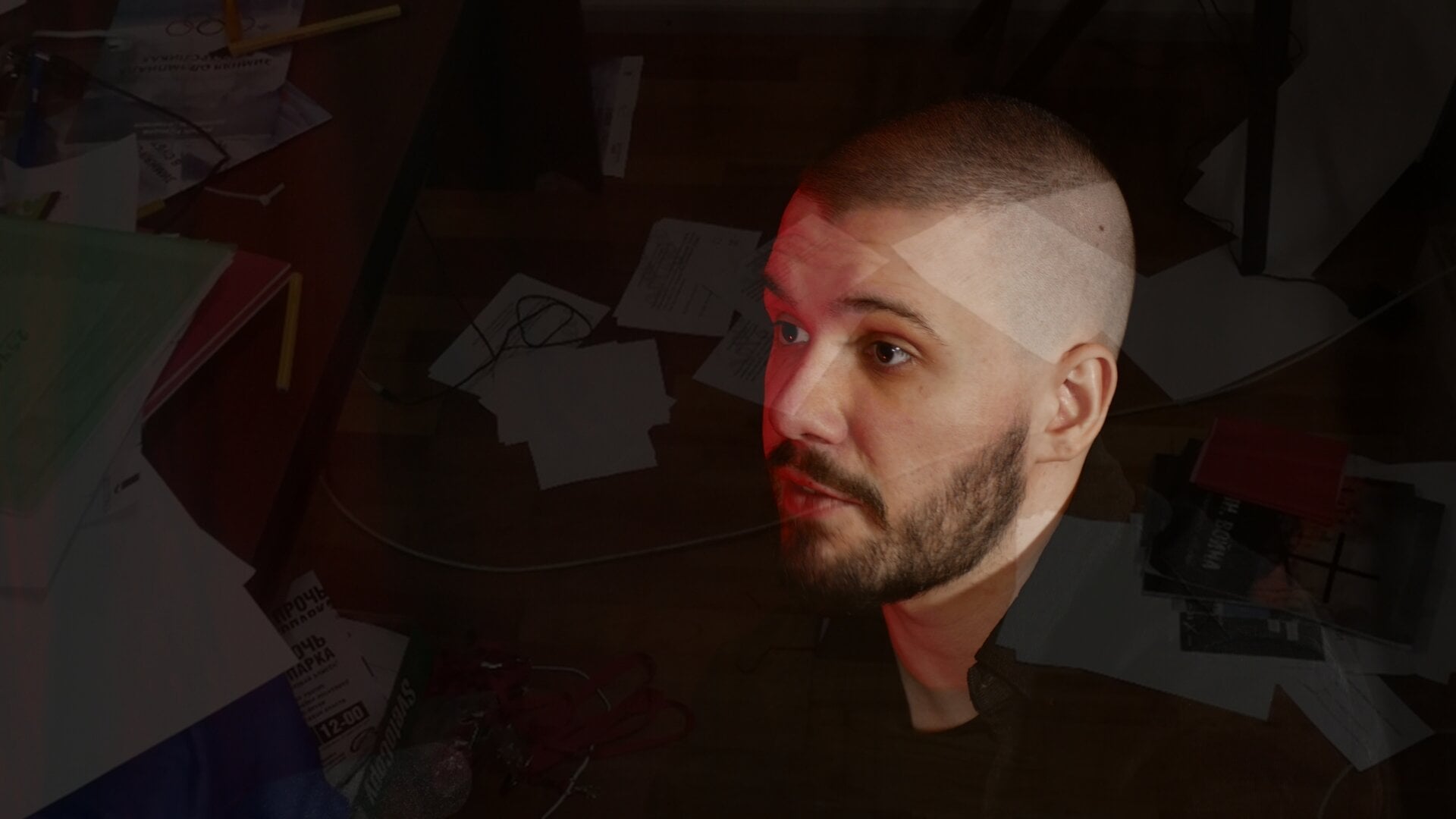
12. Letters Of The «Unpaid» Penalty From The Court
— Did you have any more court hearings?
— On September 10, 2019, my parents received a letter from the bailiff of the Kirovskiy district in Samara. The letter stated that I «had not paid» the court fine of May 31, 2018, for the participation in the All-Russian «He Is Not Our Tsar» protest. The letter stated that the fine may be increased up to 1000 rubles, that the bailiff is entitled to enter the premises occupied by the debtor without the debtor’s consent, that the debtor’s property may be confiscated, and that temporary restrictions may be imposed on the debtor. And the latter includes restrictions on leaving the Russian Federation.
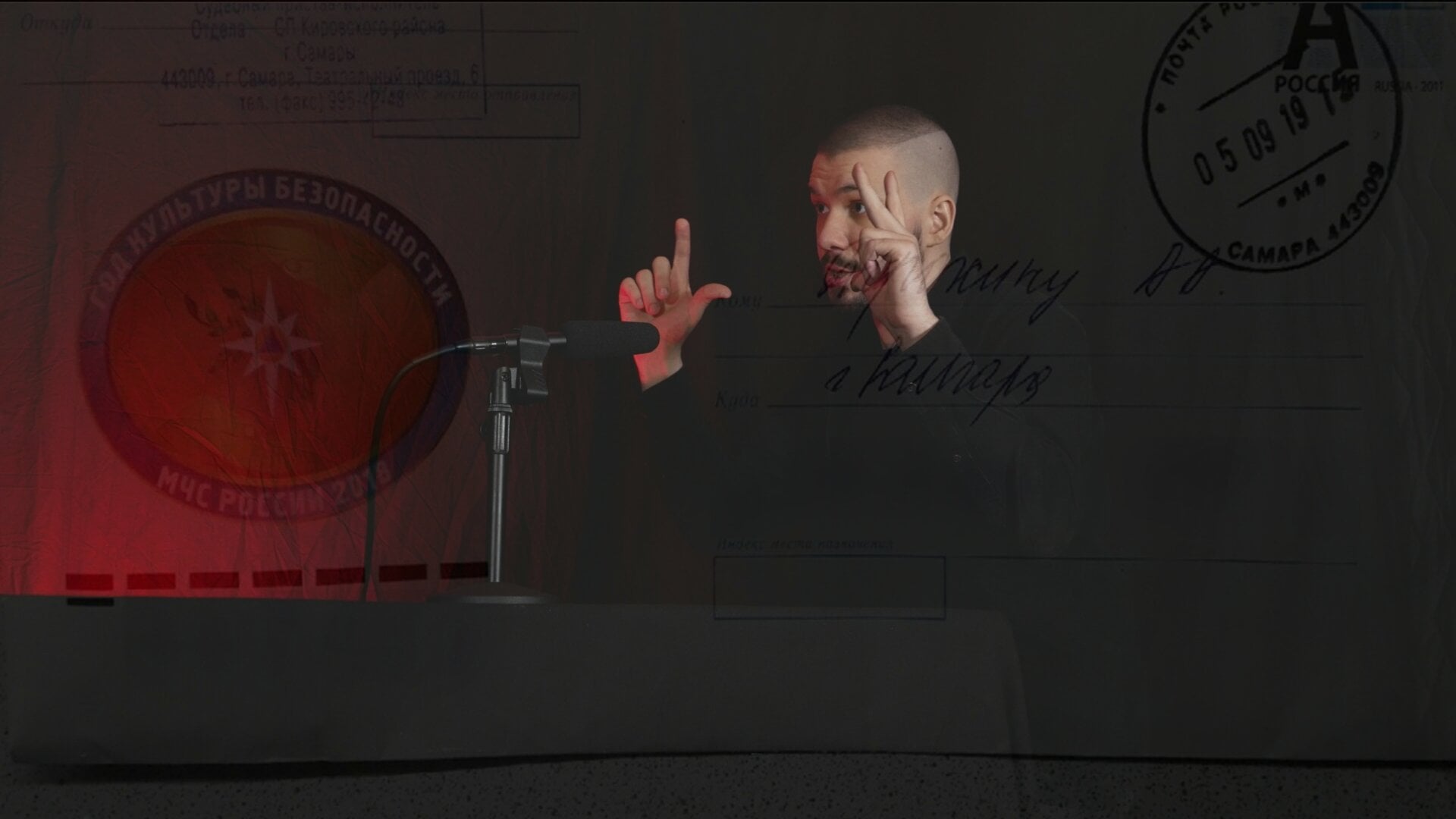
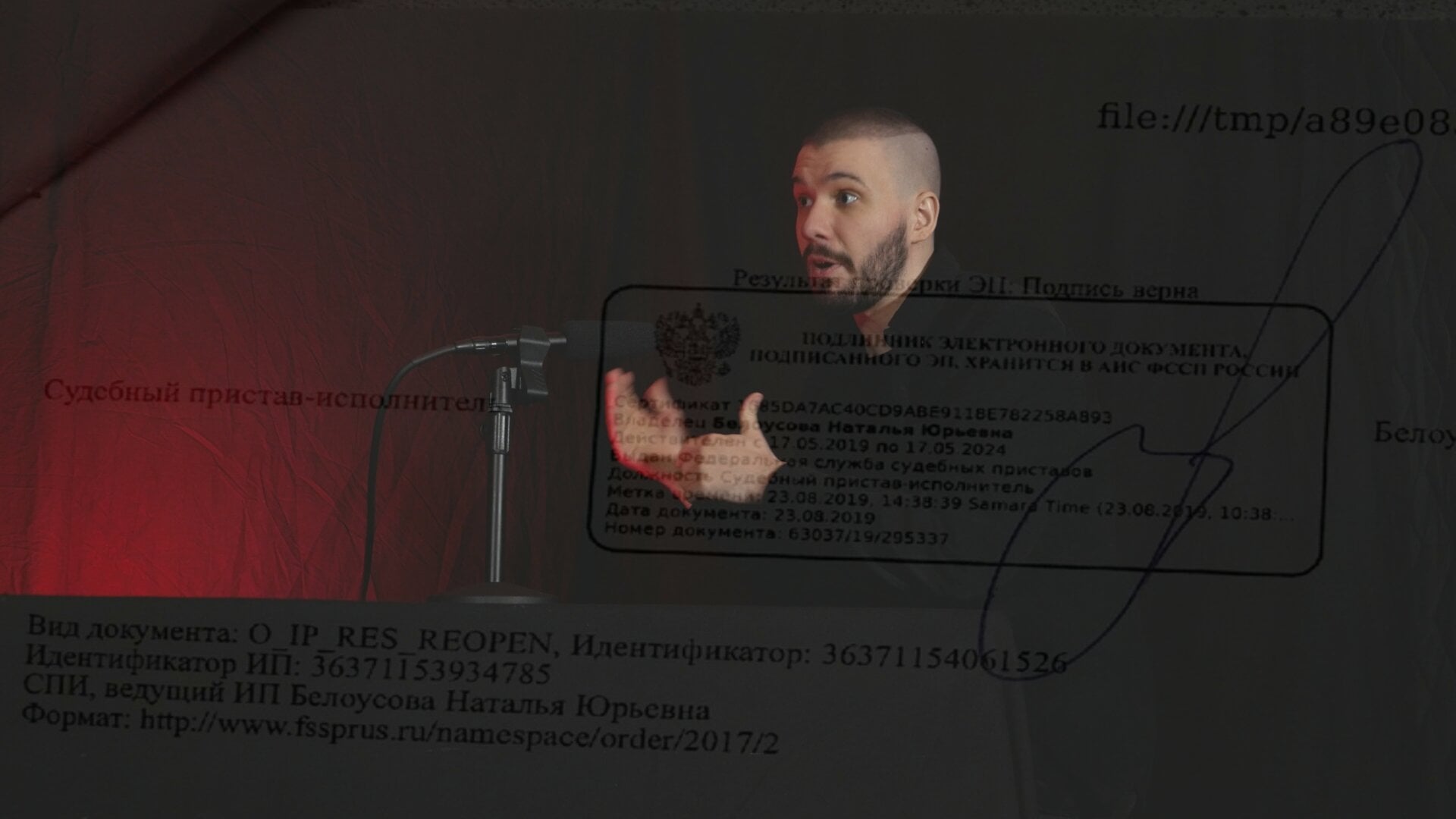
In addition, the bailiff required me to inform her of my bank accounts or accounts from other credit institutions, and accounts related to my possible wages from an employer.
I paid the fine via the state service called «Gosuslugi» back on July 24, 2018, so I sent both an email to the Office of the Federal Bailiff Service in the Samara region and I sent a paper letter to the same office. In the paper letter, I additionally asked to be notified about this problem or the inability to get a response to my mails within 2 weeks. But all my requests and letters were ignored. I didn’t received any response — my fine just continued to «exist».
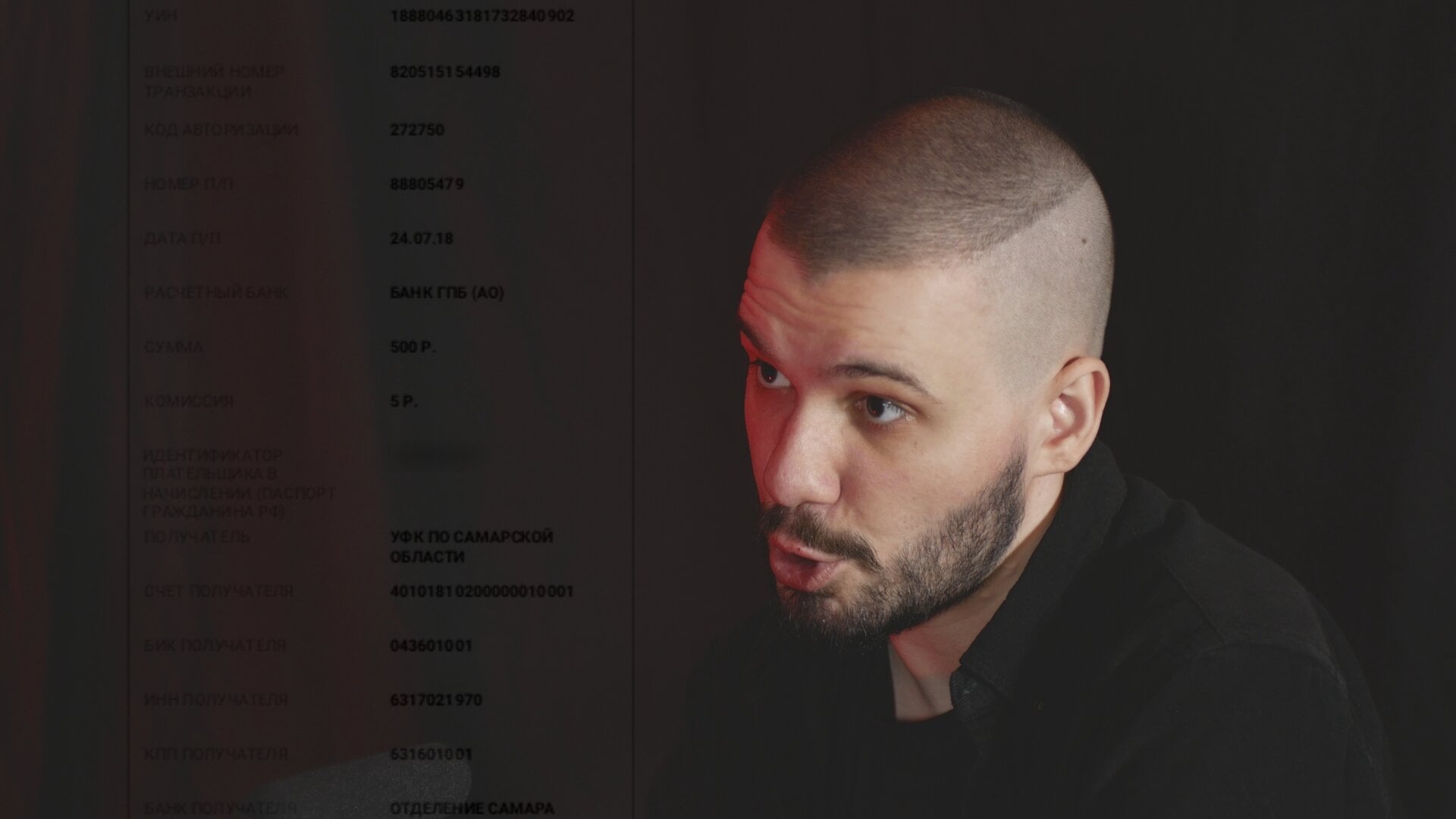


13. Messages On A Messenger
— Did the police contact you afterwards?
— On September 19, 2019, while I was in the center of the New York City, I received my first message in Russian from a stranger on a messenger. And in that message, he urged me to «clearly answer a set of his questions».

In fact, these messages seemed to be some kind of prank to me at first. But that stranger was leading the conversation in some special manner and he used the phrases like «extremist circles», «subversion», «political agent», «revolution in the Russian Federation», «mechanism of Western special services’ influence on political processes in Russia», «changing the constitutional regime», «I am guided by orders from above» — and so on and so forth. More than that, that stranger knew my phone number (that I shared it with a very limited circle of people), and he also mentioned the problems with the «unpaid» fine, which only my parents knew and never told anyone about.
In the middle of the dialogue, the stranger introduced himself as an employee of the Russian government agencies, and he told me about the mandatory visit to the police upon my return from the United States to «answer questions» and advised me not to contact any of «superiors» (whatever that means). After that, I realized that I was in serious danger in Russia and I did not know when I would be able to return back home.
ALL PARTS OF THE INTERVIEW WITH A RUSSIAN-AMERICAN
🇷🇺 РУССКОЯЗЫЧНАЯ ВЕРСИЯ | 🇷🇺 RUSSIAN-LANGUAGE VERSION
14. References
- An image of the Samara State University in the Samara city is licensed under CC BY-SA 3.0
- An image of Aleksei Navalnyi is licensed under CC BY-SA 2.0
- An image of the Kirov Square in Samara is licensed under CC BY-SA 4.0
- An image of the Ministry of Internal Affairs of Russia Headquarters in the Moscow city is licensed under CC BY-SA 3.0
- An image of the Constitution of Russia is licensed under CC BY 4.0
- An image of the new conscripts is licensed under CC BY-SA 3.0
- An image of the Samara University is licensed under the public domain
- An image of the 2018 presidential candidates in Russia is licensed under CC BY 4.0
- An image of the LDPR political party representatives is licensed under CC BY-SA 3.0
- An image of the «United Russia» political party representatives is licensed under CC BY 3.0
- An image of the Leningradskaya street in the Samara city is licensed under CC BY-SA 3.0
- An image of the «ZDF» channel logo is licensed under the public domain
- An image of the «Samara Arena» stadium in the Samara city is licensed under CC BY-SA 4.0
- An image of the winning football team of the 2018 FIFA World Cup is licensed under CC BY 4.0
- An image of the United States Embassy in the Moscow city is licensed under CC BY-SA 4.0
- An image of the «University» metro station in the Moscow city is licensed under CC BY-SA 4.0
- An image of the «Telegram» messenger interface on a phone is licensed under CC BY 2.0
- An image of the Moscow protest in 2019 is licensed under CC BY-SA 4.0
- An image of the Russian logo of the Anti-Corruption Foundation in Russia is licensed under the public domain
- An image of the Investigative Committee Headquarters in the Moscow city is licensed under CC BY-SA 3.0
- An image of the center of the New York city is licensed under CC BY 2.0
